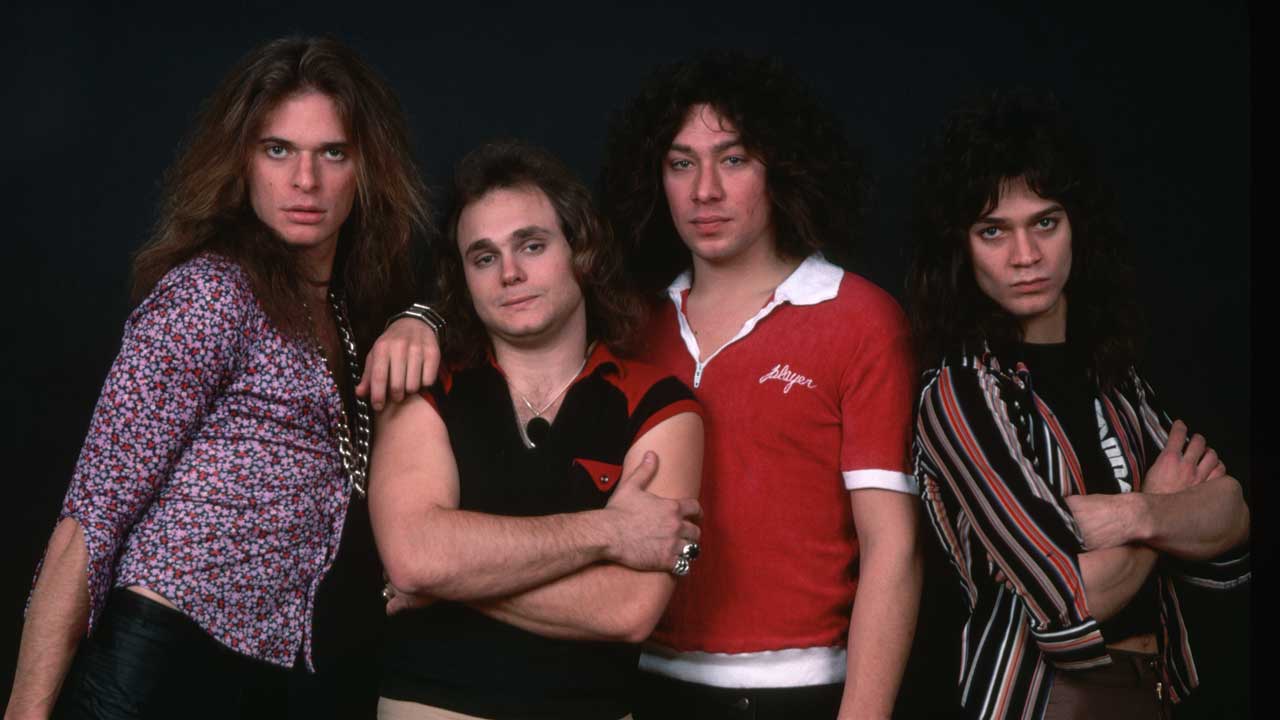The Urban Voodoo Machine's Hour Of Darkness
One member dead. Another battling cancer. Four members having three babies in two weeks. Inside The Urban Voodoo Machine's big year...
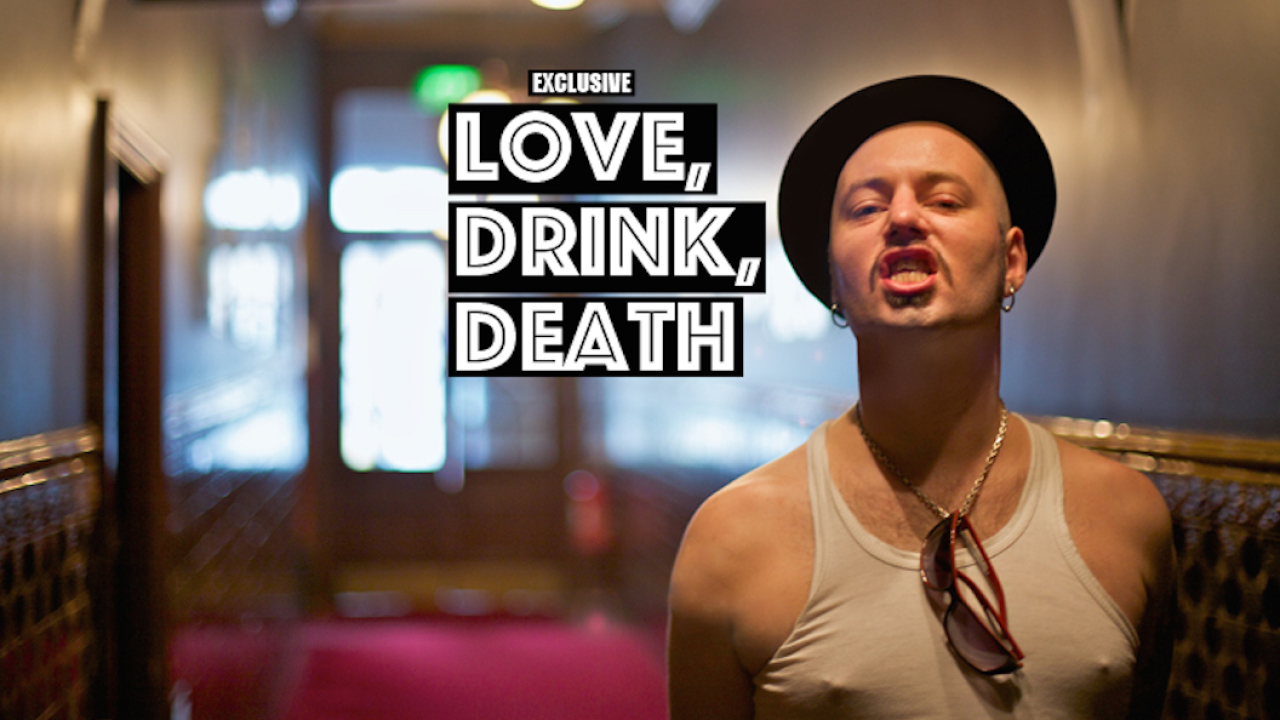
Select the newsletters you’d like to receive. Then, add your email to sign up.
You are now subscribed
Your newsletter sign-up was successful
Want to add more newsletters?

Every Friday
Louder
Louder’s weekly newsletter is jam-packed with the team’s personal highlights from the last seven days, including features, breaking news, reviews and tons of juicy exclusives from the world of alternative music.

Every Friday
Classic Rock
The Classic Rock newsletter is an essential read for the discerning rock fan. Every week we bring you the news, reviews and the very best features and interviews from our extensive archive. Written by rock fans for rock fans.

Every Friday
Metal Hammer
For the last four decades Metal Hammer has been the world’s greatest metal magazine. Created by metalheads for metalheads, ‘Hammer takes you behind the scenes, closer to the action, and nearer to the bands that you love the most.

Every Friday
Prog
The Prog newsletter brings you the very best of Prog Magazine and our website, every Friday. We'll deliver you the very latest news from the Prog universe, informative features and archive material from Prog’s impressive vault.
“With some bands the years go past and you do a gig, make an album, do a tour and, y’know, somebody’s tooth falls out or whatever. But this band, this year? Woah.”
This is a story about big things and little things. It’s the little things that get you. Tiny cancer cells that are around 0.010mm before they begin growing, dividing and subdividing to form a tumour. Tiny bags of heroin hidden in discrete pockets. Dirty little secrets. Small doses of powder dissolving in spoonfuls of citric acid, shot into minute veins, metabolising into morphine, 3-monoacetylmorphine and 6-Monoacetylmorphine and activating microscopic μ-opioid receptors in the brain. A human zygote, formed from the fusion of a sperm (50 µm) and an egg (200 µm), is no bigger than 2mm.
The Urban Voodoo Machine’s hour of darkness – a member dead from an overdose, another in recovery from cancer – began with something no bigger than a grain of rice: an odd feeling guitarist Nick Marsh had, back there at the edges of his tongue. “I had a funny sort of blip in the corner of my mouth,” he says. “Like a grain of rice. Nothing big, but I just knew something was wrong. Gut instinct, you know? That was January or February. I went to the doctor and he was like, ‘Aw, it’s just a cyst or something’.”
But Nick didn’t believe them. “It was a tiny little thing, it wasn’t bothersome or anything, but I just knew something was wrong. So I insisted and it was two months until they saw me again but as soon as they took a look at it they went, ‘Ok, we need to do a biopsy. It looks like a tumour’. “I thought I was going to die,” he says. Marsh has a wife – Katharine Blake, a founding member of both Miranda Sex Garden and the Mediæval Bæbes – and two young daughters.
“When they say, ‘It’s cancer’, the first thing you think is, ‘I’ve got to take care of business. I’ve got to say my goodbyes, put my affairs in order…’”
Around the same time as Nick went in for surgery, frontman and band leader Paul-Ronney Angel got a phone call from fiddle player Rob Skipper. I’m in rehab, Rob told him. Heroin. Paul-Ronney says it was a surprise, but he qualifies that immediately. In actual fact, he says, months before, some guy (“a bit of a dealer”) had called anonymously and told him that his fiddle player was out buying smack.
“So I confronted Rob. He denied it at first but then said, ‘OK, I’ve done it a few times but I’m not really doing it now.’ I got him to promise me he wasn’t. And then, round the time that Nick went into hospital I got the phonecall: ‘I’m in rehab’. Great.”
The latest news, features and interviews direct to your inbox, from the global home of alternative music.
Those little things? They have a nasty habit of developing into very big things.
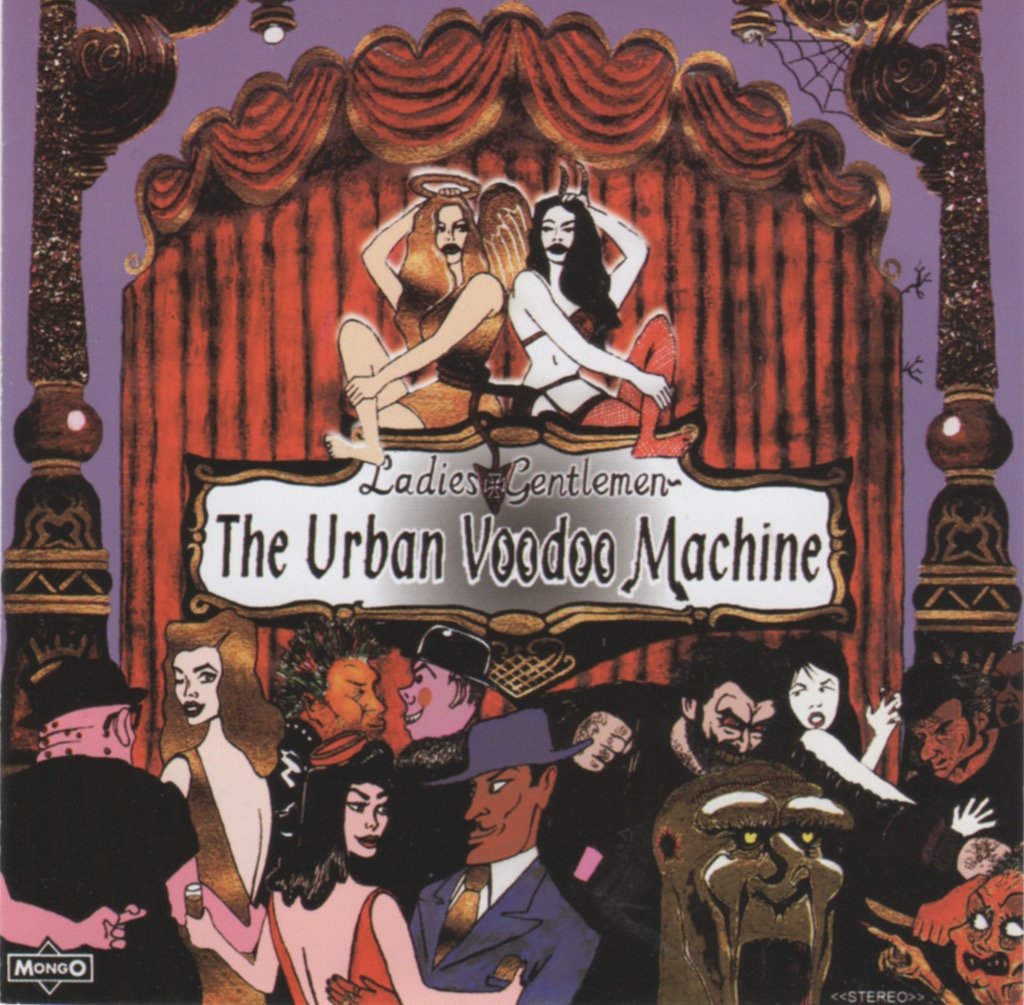
The band’s second release, from 2005: Ladies And Gentlemen! The Urban Voodoo Machine E.P.
This is a story about memory. Paul-Ronney Angel has a much better memory than me. Time and again during the course of our interviews for this piece I mention something and he nods. “You said,” he says, in the same tone I use in phone calls with my mum.
The way I remember it, about 10 years ago when I had just started editing Classic Rock, he sent me The Urban Voodoo Machine’s second EP. I remember liking it and being encouraging but ultimately thinking he was a chancer and never expecting to hear from him again. He had a funny accent which I thought was the voice of a Londoner faking some kind of American accent. (I was way off. He’s Norwegian.) He had been homeless and sold The Big Issue when he’d come to London. I had worked on The Big Issue for a bit and was wary of sellers. And he claimed to have been in The Godfathers but when I Googled the band, I couldn’t find any reference to him (Wikipedia doesn’t list him but this site does, for the years 1995-97, 2000).
The way Angel remembers it, it was me who approached him, looking for Nick Marsh. He’s probably right. Nick used to be in a band I loved, Flesh For Lulu, and one of the first things I did at Classic Rock was come up with the idea of ‘The Lost Issue’, an annual themed issue devoted to lost albums, forgotten scenes, ignored bands, derelict venues. My interview with Nick on Flesh For Lulu appeared in the first one of those (issue 90, March 2006).
The next time I remember hearing from The UVM was when Angel sent me a link to the video for a new song of theirs called Always Out. I was blown away. The song was a perfectly-formed rockabilly number: all brushed drums, Eddie Cochran string bends and lyrics that listed all the various ways the singer was ‘out’ (out of his head, out of luck, out to lunch, out of time). The album it came from – Bourbon Soaked Gypsy Blues Bop’n’Stroll – lived up to its title: 15 tracks of hell-raising, profanity-strewn insta-classics that sounded like a great night out in a dangerous part of town.
The music fused junkyard blues and stinging rockabilly with Morricone horns, fiddles, sinister cabaret and punk rock tangos, but maybe most amazing of all was the lyrical voice. For a guy to whom English was his second language, Angel wrote like he’d been schooled by Lemmy and tutored by Nick Cave: dark stories imbued with great turn-of-phrase and brutal humour. Take demented sea shanty Orphan’s Lament: ‘My father was a sailor/My mother was a whore/And me, I was the accident made when he came ashore/They sent me to the orphanage when I was a baby/But it was too late they said and no-one could save me/I grew up hard and I grew up mean/Was already a killer when I hit my teens/Snake-Eyed Jack, well that’s my name/Too tough to die and too wild to tame…’
Love Song #666’s opening lines come from its messed-up lothario narrator (‘So I fucked your sister/Tried it on with your mother/Kicked the shit out of your brother/But darling… I always… loved you…’) before breaking into a satanic tango. Oh, Lonesome You!’s tale of a gambler and wife beater laid it on the line: ‘Everybody let you down/You’re the biggest cunt around/And when they chase you out of town/I tell you, man/I won’t feel sorry for you’.
This was 2008. At the arse-end of 2014, I sat in a bar with Paul-Ronney Angel and asked what he’d wanted back then. “To have made a lot of money and be dead by now,” he said. “It was a short term plan.”
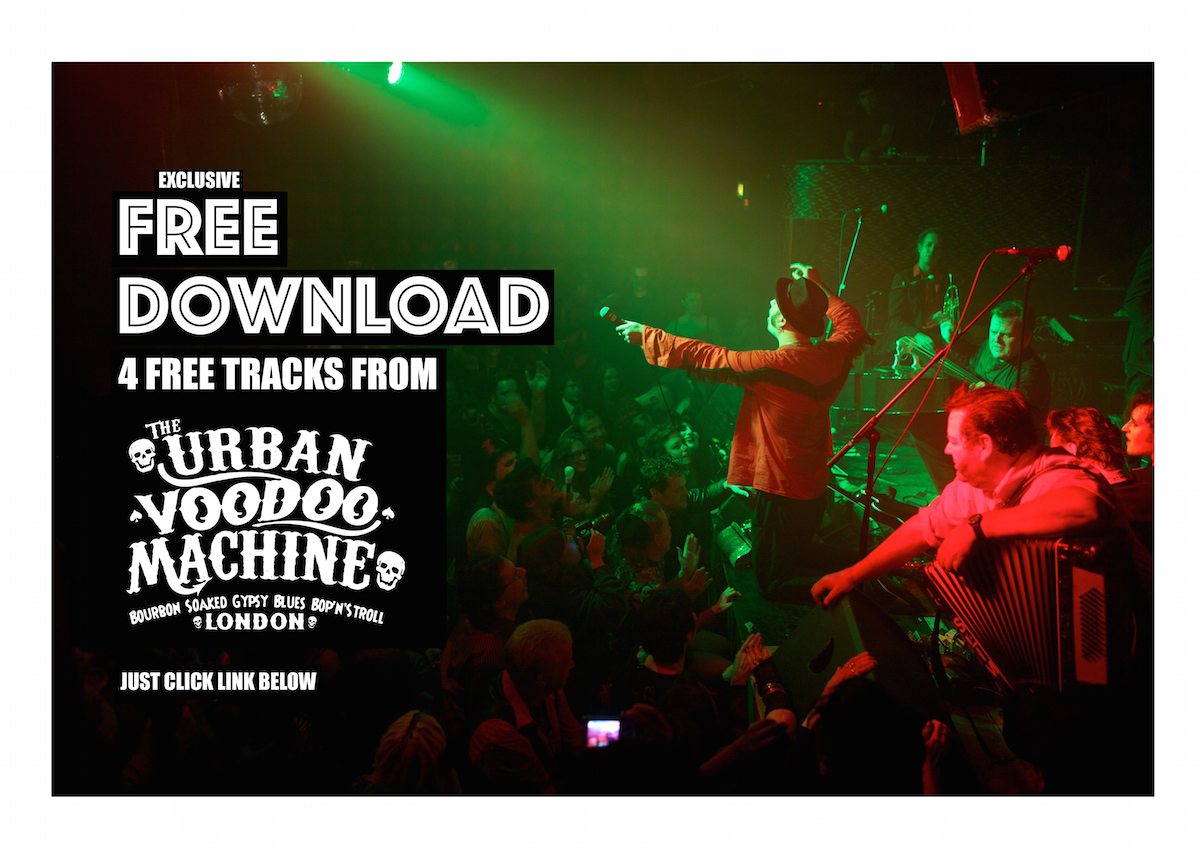
CLICK HERE FOR YOUR FREE 4-TRACK SAMPLER FROM THE URBAN VOODOO MACHINE.
This is a story about business.
The money did not roll in. Fame did not beckon. The big record company did not come along and a £300k advance was not delivered. Tour support was not paid and Rick Rubin’s phone did not ring. Them days were over. “The record companies sort of died as we started,” says Angel. “By 2003, labels started to fall and MySpace came into the world or whatever. I think we were probably too hard to market anyway because we cover a lot of musical ground. I mean, I think we always sound like the Voodoo Machine, whether we’re playing latin or rockabilly, but people are always like: ’I can’t put them in a world music box, I can’t put them in a rockabilly box, or a rhythm and blues box…’”
In days of old, a powerful music press could have seized upon the band’s genre-busting approach and championed them. But as the influence of the music press waned, so music became more delineated. Google gave every clique direct access to the music they most loved, whether it was prog rock, symphonic metal or surf punk. So what if you’re a band that doesn’t fit neatly in any genre? Well, you’re screwed.
Classic Rock covered them - they rocked, after all - but next to nobody else did (low-circulation punk mags like Vive Le Rock and Big Cheese, a handful of websites). They got a spot on Clive Anderson’s Loose Ends show on Radio 4 in 2011, but the big break eluded them. Instead, they did it the hard way: they gigged, they supported The Pogues, they played Download (and a ton of other festivals), they built an online fanbase, they ran their own club night (Gypsy Hotel) and they made and released their own records - second album In Black & Red, 2014’s brilliant Love, Drink & Death! – and so it’s gone for ten years now.“I remember when the Stones had been going for 20 years and they seemed like dinosaurs,” says Angel. “We’re in our 11th year and most of the world haven’t heard of us yet.”
Is it tough to make money out of this? A 10 piece band with no record company support…“Fucking really hard, yeah,” he says. “We’re paying for everything ourselves. Pressing records. We did the Pledge thing, got 169% – so there’s a hardcore fanbase out there but you’ve seen the kind of products we put out as well. It takes a long time to create that and get good photos. The cover painting for Love, Drink & Death! took six months for the artist to paint. It’s not just some photocopied thing put together in ten minutes. But I’m scraping a living somehow. Half the band have day jobs, or side things.”
And with 10 members dotted all over the country, tours are a logistical nightmare. “I just book the gig and hope for the best. But also with that many members we can afford to lose a couple here or there. Not to a heroin overdose or cancer but you know what I mean,” he chuckles darkly. “‘Yeah! Kill off a couple more!’”
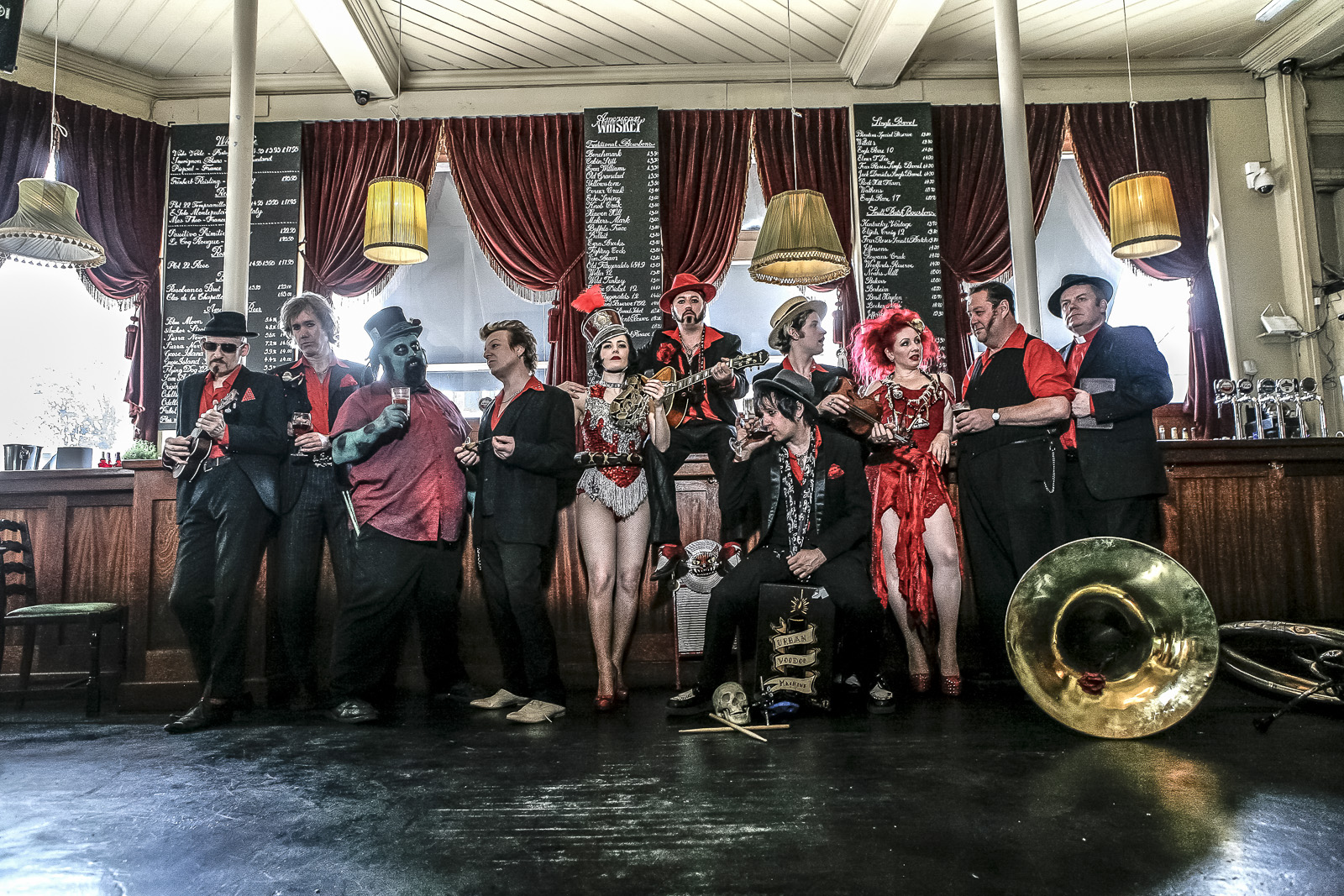
This is a story about London. The UVM are very London. Their frontman might be Norwegian and their members may be scattered all over the UK, but London looms large in the band’s music. London as ethnic melting pot. Dalston, Camden, canals, Special Brew. The London of Oliver and Fagin, the Pistols and the Clash. London as escape route, as a place you can get lost and reinvent yourself.
When he was 13, Nick Marsh’s mum ran a stall down Camden Market, back when the market was just half a dozen tables. There was always a busker down there - an old hippy type - and this gave Nick an idea. He could busk. He had a guitar, he knew _Blowin’ In The Wind_ and _Ziggy Stardust_, he could earn himself some money. So one Saturday he gets down there early, gets his hat on the ground and is strumming away when, ah fuck, the old hippy guy appears.
He comes over and eyes Nick-the-Kid up. “How long do you think you’ll be here?” he says.
Nick shrugs. “I dunno. Til I’ve got 50p?” he says.
The hippy puts his hand in his pocket and throws a coin at him. “Here’s 50p,” he says. “Now fuck off.”
A couple of years later, Nick’s at his first ever Clash gig: the Rock Against Racism rally at Victoria Park, April 1978. “I was stood right at the front and I was like: ‘That’s- I know that geezer! I know that geezer!’”
The old hippy was fronting his new favourite band. He was Joe Strummer.
Nick Marsh has loads of stories like that. Like the story about being down the Batcave and Dead Or Alive’s Pete Burns taking off his stiletto and smacking Specimen guitarist Jon Klein on the head with it (“Jon Klein’s standing there with a fucking shoe sticking out his head! And then he pulls it out and blood shoots up like a fucking oil well…”), or the time Flesh For Lulu guitarist Rocco challenged Sisters of Mercy’s Andrew Eldritch to a duel – a fencing match – on the campus of Glasgow University. (Rocco won. Eldritch didn’t know, but Rocco was a former fencing champ.)
His band Flesh For Lulu could’ve been huge. They kicked around the 80s goth scene (penning one of the great goth anthems in Subterraneans but their Stonesy raunch – the nods to Lou Reed, Alice Cooper, Bowie, Johnny Thunders – marked them out as potential US-friendly unit shifters. Their music appeared in John Hughes movies like Some Kind Of Wonderful. Ferris Bueller had posters of the band on his wall. But before they could really crossover, grunge came along. And suddenly being “an 80s band” was the worst thing you could be.
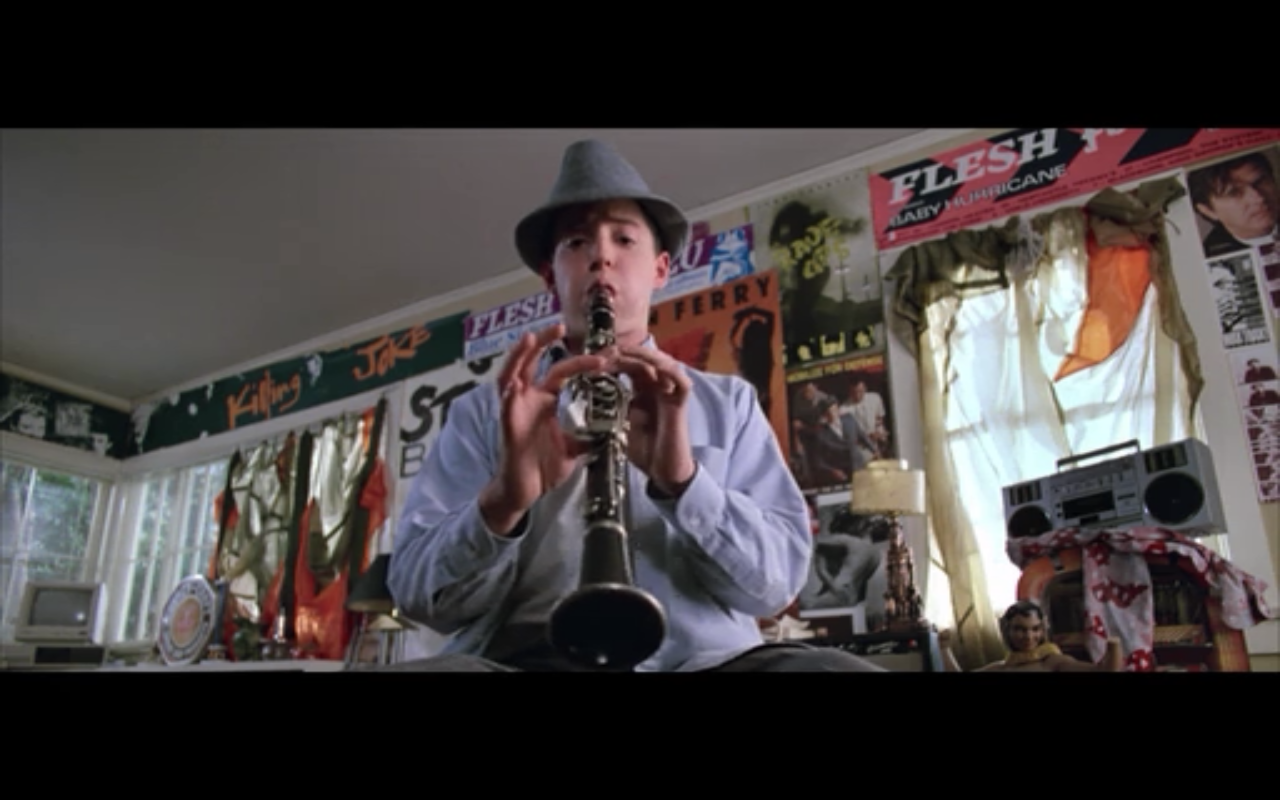
Scene from Ferris Bueller’s Day Off (1986). Note Flesh For Lulu posters.
So Nick’s been around. And what the internet taketh away it can also, like, giveth. Social media has given passionate fan bases a place to gather, to share photographs, set lists and bootlegs and clamour for reunion gigs. Nick has over 2000 Facebook friends. When he was diagnosed with cancer, Marsh did a quite remarkable thing: he opened up his battle with the disease to the world, using Facebook to document his surgery and recovery.
“I didn’t know how else to approach it really,” he says. “I just thought, ‘Here I am’. Facebook is like an open diary if you want it to be. I just felt like I wanted to do that. I don’t know why now.”
So his Facebook friends watched as he “had all my back-teeth on the right hand side removed in order to remove cancerous tissue from my mouth and a section of my forearm – including veins, tendons and skin – transplanted in its stead. The cancer had begun to spread into the lymph-nodes under my jaw, so a massive section of my neck was also dissected and removed. After surgery, I had a six week, intensive course of radiotherapy five days a week accompanied by six courses of chemotherapy. The sixth dose was withheld as there was a strong chance I wouldn’t survive it, due to weight-loss and dehydration.
“NHS oncology teams took special care not to zap my vocal-chords – there can be only one Lemmy, ha-ha! 10 months later my saliva glands are slowly regaining function, although I can still only open my mouth half an inch. Amazingly that doesn’t seem to stop me singing my ass off, which I’m so grateful for, cause that’s what keeps me fighting and laughing!”
He jokes about the subsequent “outpouring of warmth – ‘the warmth and humility!’” from people on Facebook and elsewhere, but people were genuinely moved and encouraging. People were rooting for him.
“I wasn’t looking for that, you know. And once I started it really helped. Once I was in the fucking hospital and I couldn’t even have a drink of water. Because, with the chemo, you take a sip of water and it just makes you throw up – except you throw up three times the amount you just drank. I was literally withering away. I was hanging on for dear life. It was fucking tough and it [the support on Facebook] really did help.”
He’s waiting now for the all-clear, but meanwhile he’s back gigging, with the UVM and with Flesh For Lulu. “I play in two of the last great rock’n’roll bands in London, have a beautiful family and the best fuckin’ friends ever – of course I’m gonna make it, man. Witness the magical healing powers of rock’n’roll!”
Nick Marsh is too much of a geezer to say this, but maybe, just maybe, this is a story about love.
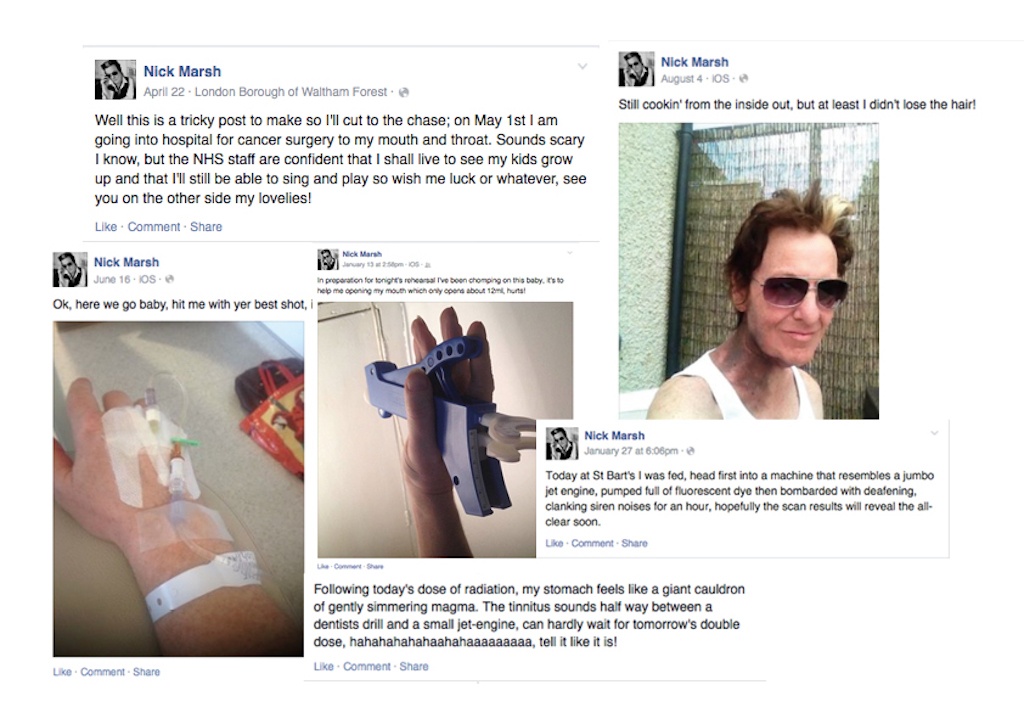
It’s definitely a story about musicians. Music can be like an addiction. When some people find music, it makes sense of everything and they never want to let it go. Rob Skipper’s mum was a music teacher. At his funeral she told a story about how The Kid wanted to play the violin from an early age. She didn’t want a three year old with a violin in the house, so she made him wait until he was four.
15 years later, Rob Skipper formed The Holloways in 2004. Fittingly the song they’re best known for is about a love of music. A jubilant indie rock song with traces of reggae and African highlife guitars, Generator reached no.14 in the UK single chart in 2007. ’I can get a record player and a generator,’ go the lyrics. ‘Generate the music that makes you feel better… When I was a young boy, I got a stereo/And I taped all the songs straight off the radio/The sounds that the bands made, and the melodies/Was all I need to make me feel free’.
Around the same time The Holloways were getting together, Rob was working at the Borderline where he met The UVM scrounging beers after a show. He started hanging out, roadie-ing, sitting in on guitar. One night he crashed at Angel’s house and the next morning the two of them wrote a song called Corpse In My Trunk. When The UVM’s original fiddle player Barney Hollington left, Rob accepted the gig. The band’s youngest member, they nicknamed him ‘The Kid’. And all the while, The Kid had his own career. When the Holloways split in 2011, he formed The Musical Differences and that band morphed into Hares.
The Kid was in rehab around the same time that Nick Marsh had his operation, but he was out and scheduled to play with the Voodoo Machine on the Silja rock cruise between Finland and Sweden in May. He never made the flight and didn’t answer his phone. He’d relapsed. “I guess by that point the truth of how badly hooked he was really hit home,” says Angel.
He sought more help and the band played during the summer without him. In August, Angel got a call from a rehab in Thailand. It was Rob. He’d been thrown out of every rehab in the UK, he said. ”He was literally thrown out of the Priory,” says Angel. “So he calls me from Thailand and he’s all positive – ‘I’ll see you in a couple of weeks!’ – and then he came home and went straight to Brighton. So I didn’t get to see him. That’s where it happened.
“He went to his sister’s place. She’s the one who found him. He did the old classic ‘just one more’.”
The death of a relapsing addict is a common pattern. “People think that they’re not going back on it,” says Nick, “and then for some stupid reason they decide they’ll have one last hit and they forget that the dose that they were taking before was when their tolerance was so high.
“It’s so hard to talk about,” says Nick, so we don’t for a moment.
“They should legalise everything,” says Angel. “Then when you go into the chemist to buy it they’ll be like, ‘OK: when did you last take it? What’s your tolerance?’ or whatever.”
Rob Skipper died on October 2. He was 28. His daughter Elizabeth, born in January, wasn’t even 10 months old.
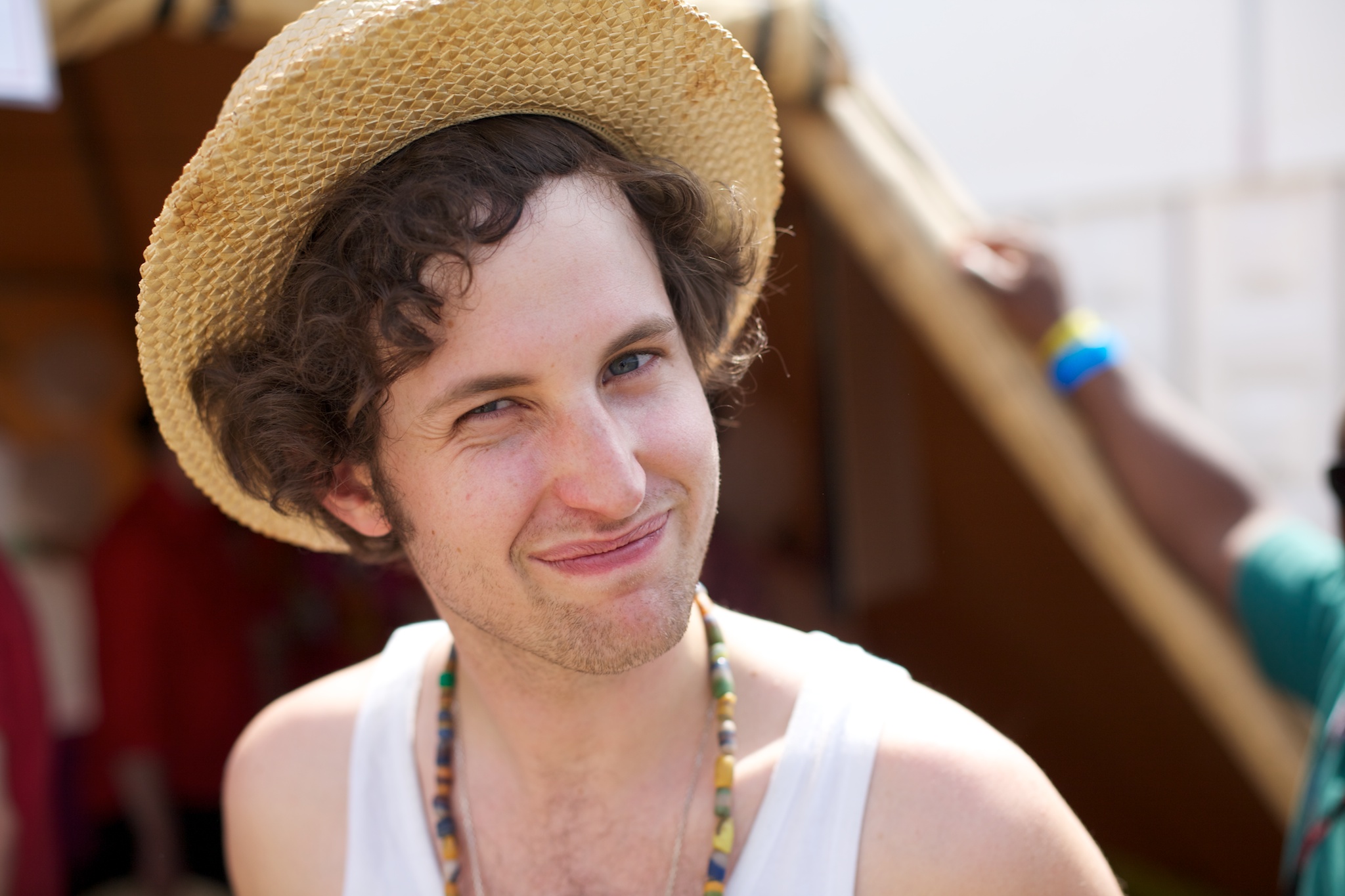
When the news broke about Rob Skipper’s death, someone at Classic Rock leaned over to me. “There is a lot of heroin around that scene,” they said. I mention this to Nick and Paul-Ronney. We’re in an American diner in Soho. The two of them are dressed like the cast of Boardwalk Empire. Nick has a fresh scar running along the length of his jawline.
They are horrified at the suggestion. Angel: “No at all, no. I’m really very against it. We are a hard partying band, there’s no secret about that – a lot of drink and sometimes some other stuff flying around…“
“…But not heroin,” says Nick. “Not anybody I know around the Gypsy Hotel scene or East London scene. It’s more like a Chelsea, Kings Road rich kid scene.”
“Pete Doherty’s got a lot to answer for,” says Angel. “Not that I want to blame him for a generation of heroin users - like people did with Johnny Thunders: ‘Oh when Thunders came to town, everyone turned to smack’ – it’s not like that. But it is more the indie scene.”
“We’re more a bunch of pissheads than anything,” says Nick. “That’s why it was such a shock, because it’s really not around. It’s not around.”
Marsh has had experience of this kind of thing before. In the early days of Flesh For Lulu they auditioned a guitarist called Rocco from Wasted Youth. Heroin was a problem in that band and Rocco wanted out.
“When he turned up to audition for Flesh For Lulu with, like, a borrowed guitar, he was nodding out in the audition,” says Marsh. “And everyone else in the band was like, ‘You don’t want that guy in the band, do you? He’s a junkie!’ But I was like, ‘Yeah, but he wants to get clean, to get away from it. He’s just left a band because they were all hooked.’ So that was my own personal mission, to get Rocco away from all that. We went on tour, funnily enough, to Norway, because there’s no junk there, or no way of getting it, and he went cold turkey on me in the back of the van. I had to hold on to this shivering, gibbering wreck for a couple of weeks. But he meant it when he said he wanted to get away from it – he never did go back.”
The Voodoo Machine have a song called Heroin. ‘Heroin put my brothers in the ground,’ it goes. ‘Heroin put my sisters on the streets… Mama tell your children, stay clean…’ It’s a blues song. I once had the crazy idea that maybe I should suggest it to Joe Bonamassa to record but I realised he couldn’t pull it off. The fact that it sounds authentic coming from Angel, meanwhile, suggests he’s been around heroin.
“I’ve had several mates die of it, yeah,” says Angel. “One of them was a neighbour, Desperate Dave, he lived below me. I kept wondering what had happened to him. I knocked on his door and rang his phone. Eventually I looked through his keyhole and I could see his hand and it was black. He’d been lying there for five days.
“Camp Tim as well. He’d gone AWOL too. No one had seen him for a couple of months. Until he started to smell, you know.” He sighs: “We recorded that song [Heroin] twice - once with Wilko Johnson – and Rob played on both those versions. Did he not fucking listen? I guess not.”
It’s late afternoon. Nick has to leave to pick up his kids from school. “I know what’ll happen,” he says. “I’ll get on the tube and remember something I wanted to say.” The next day he sends me a message via Facebook.
“Nice to see you yesterday,” he says. “Made it back for the school-run then I remembered what I wanted to say: I’m gonna strangle that Kid next time I see him!”
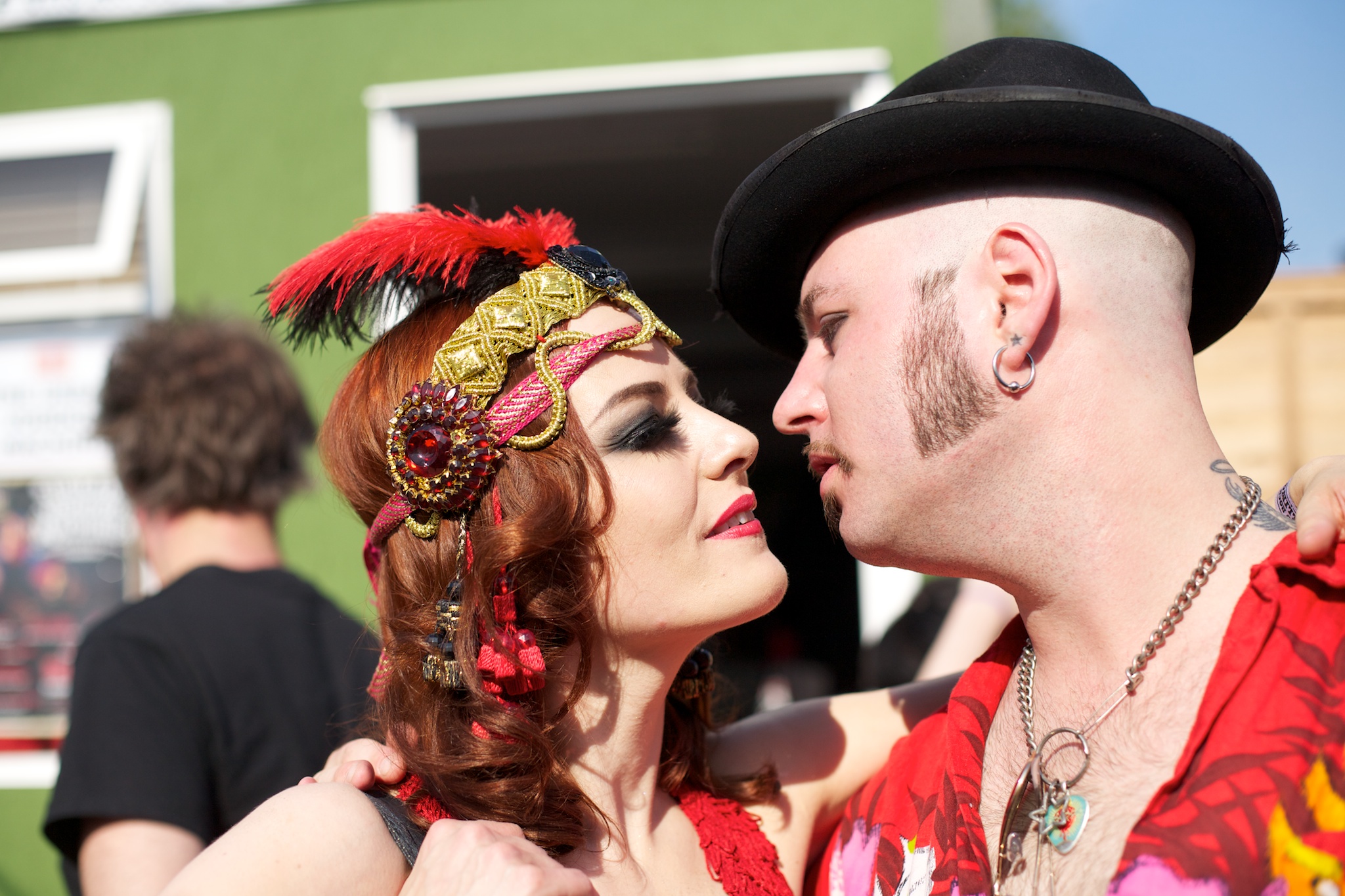
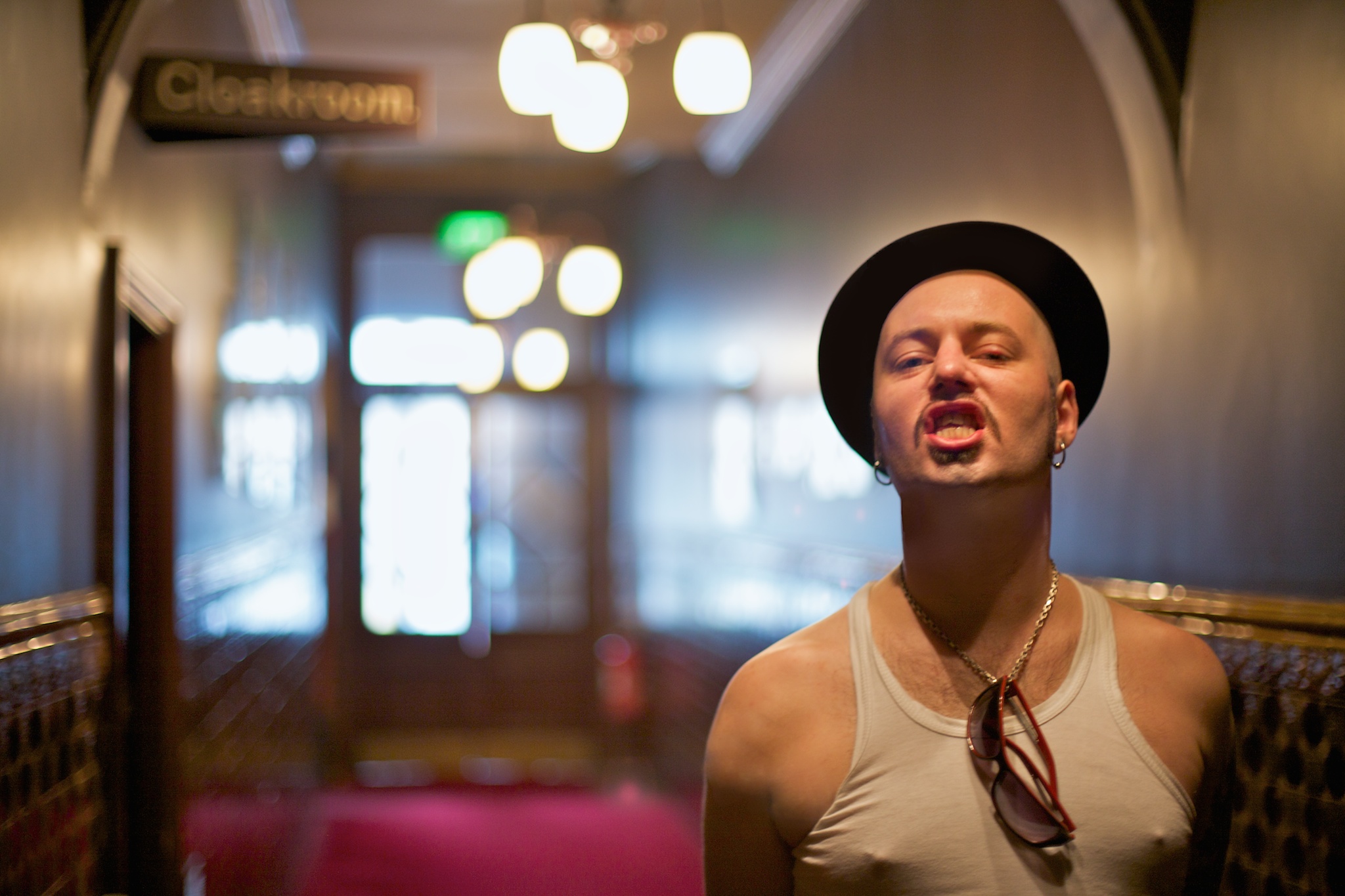

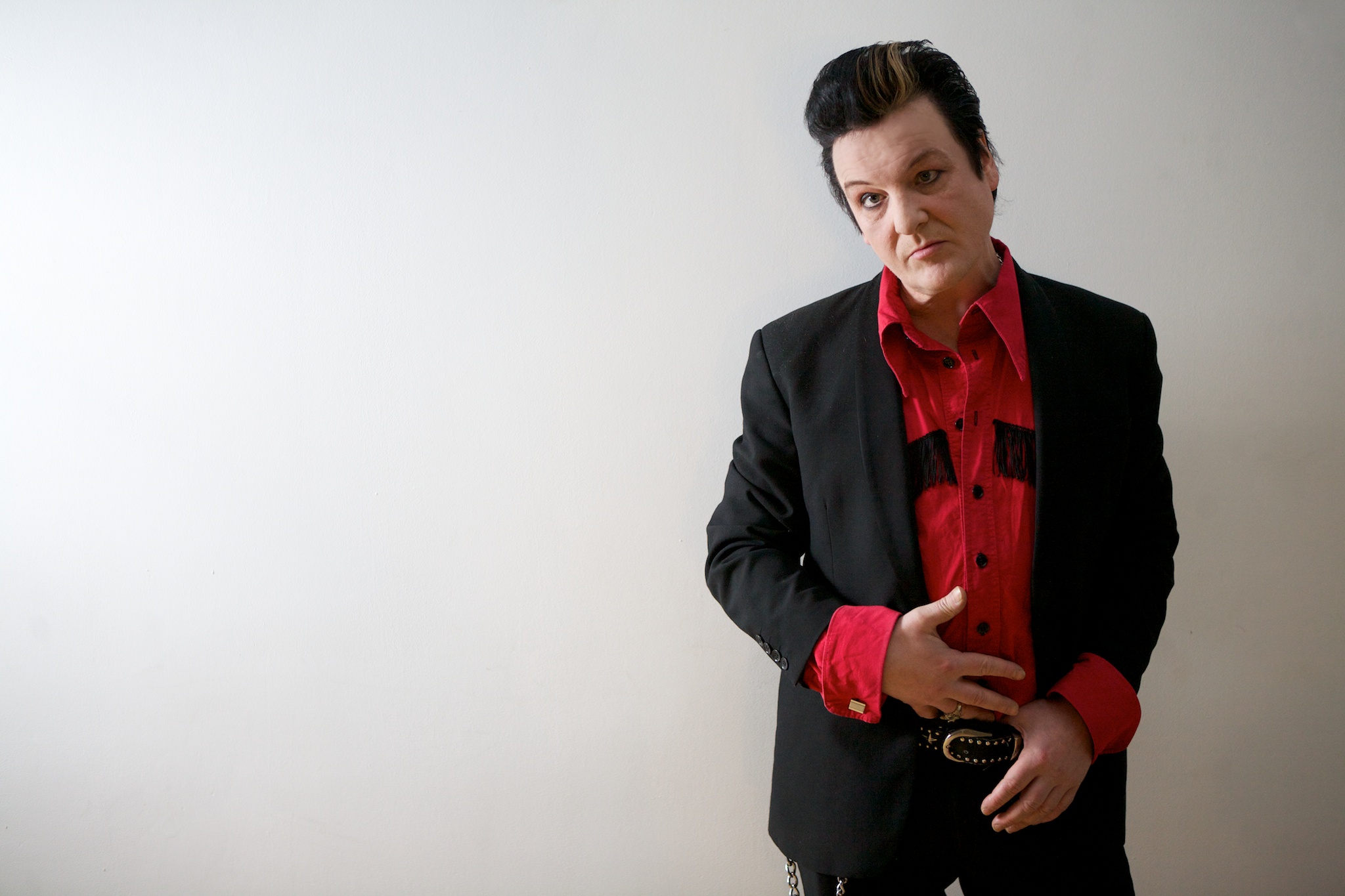
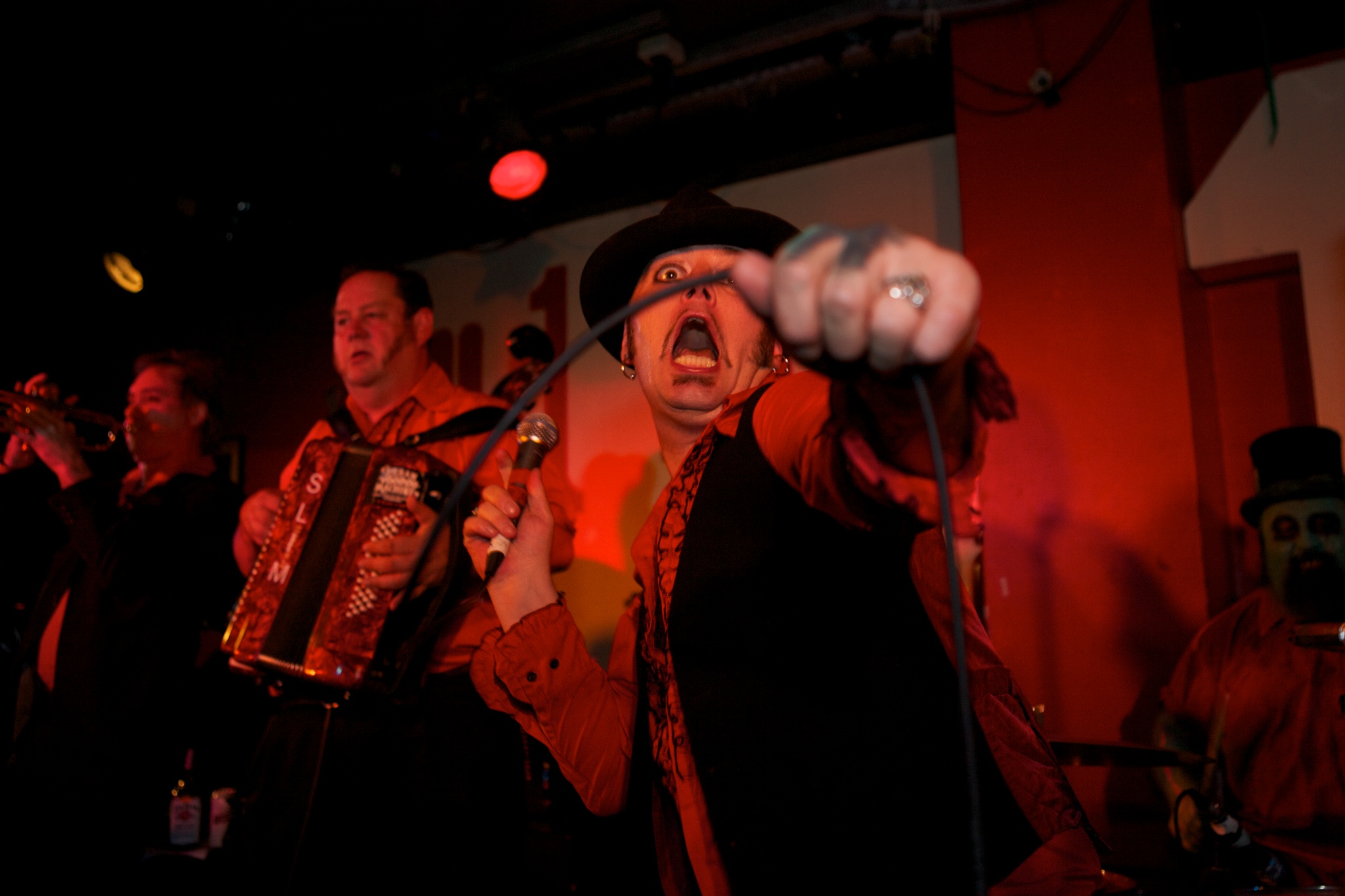
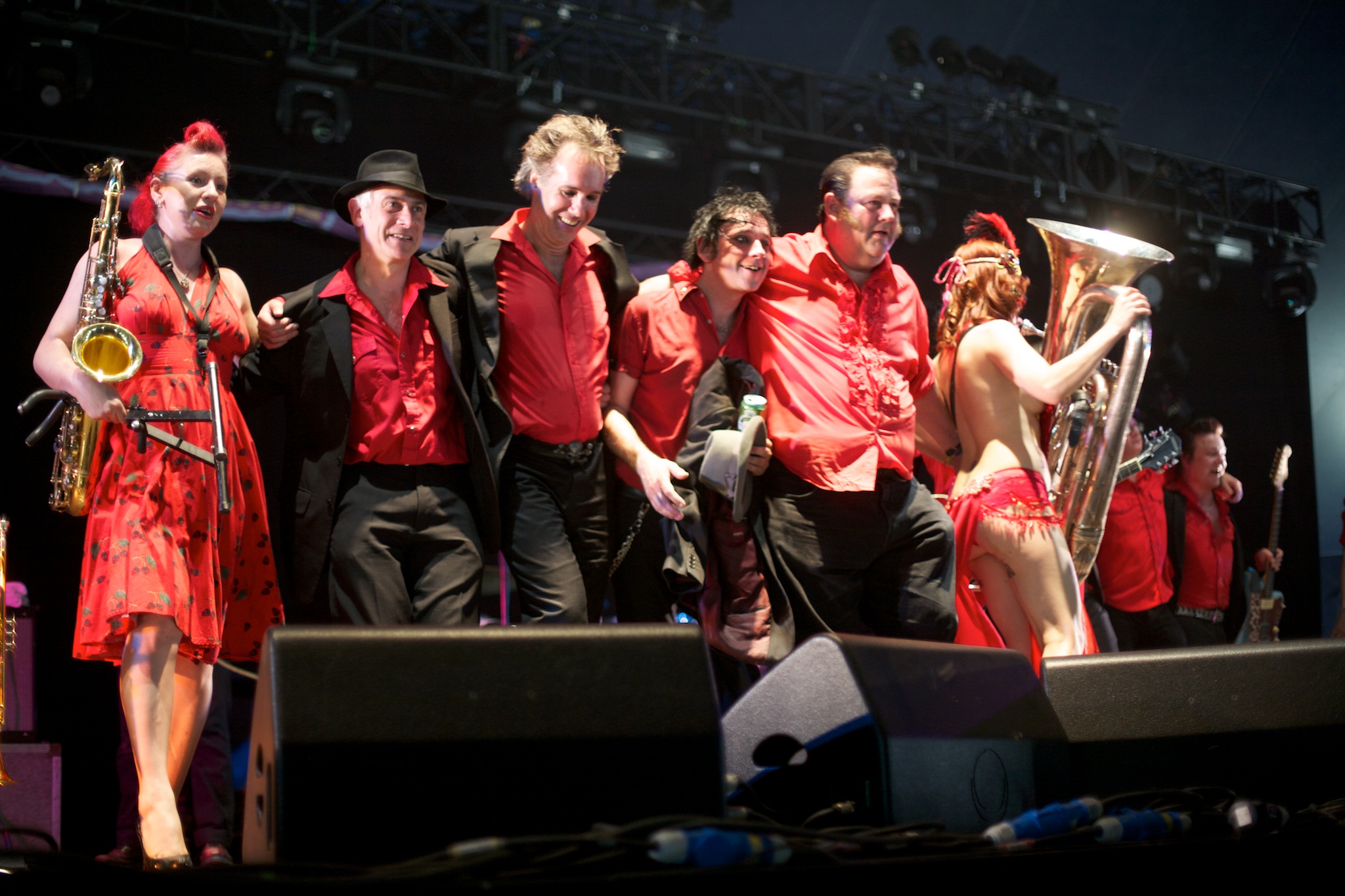
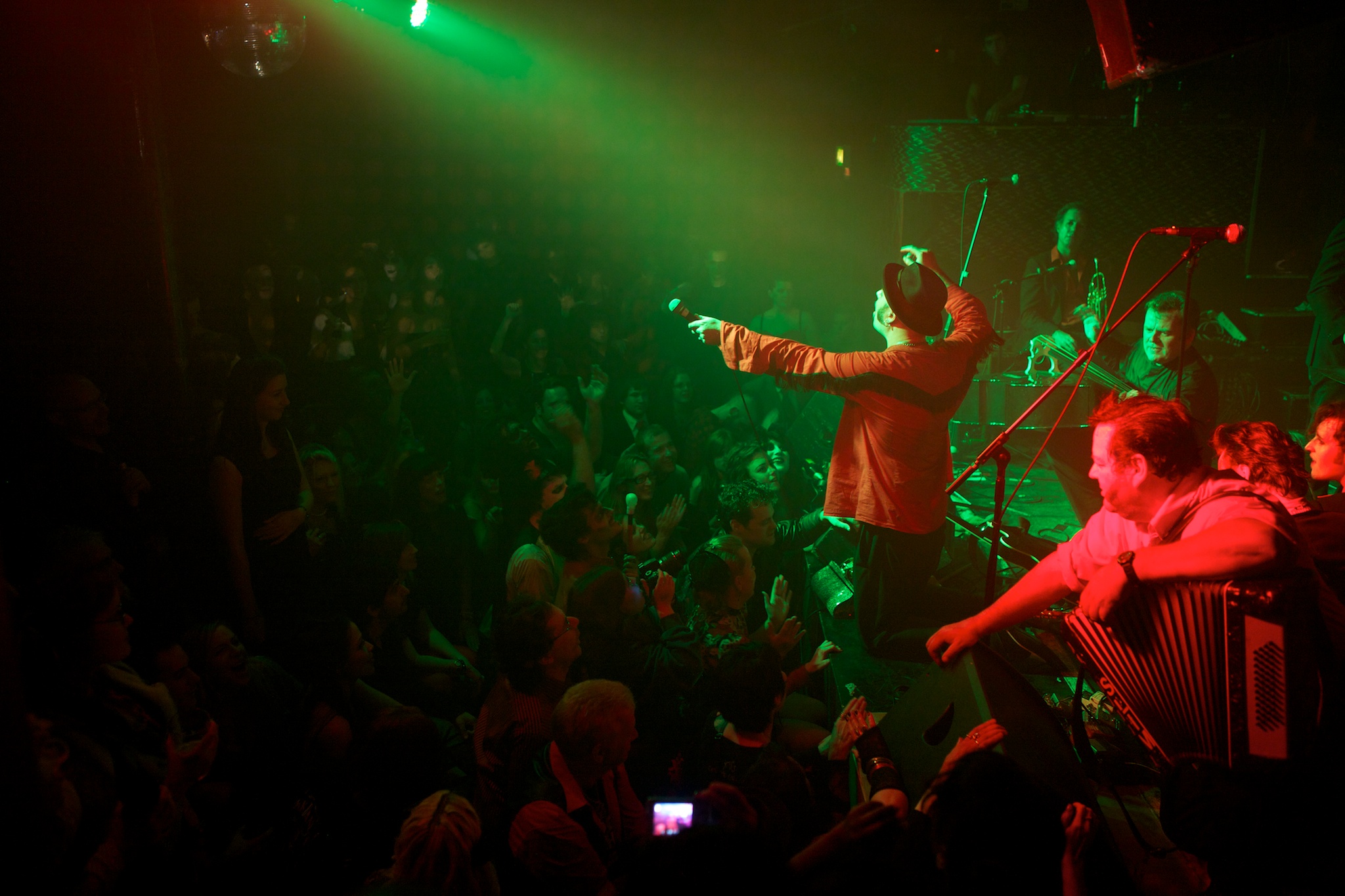
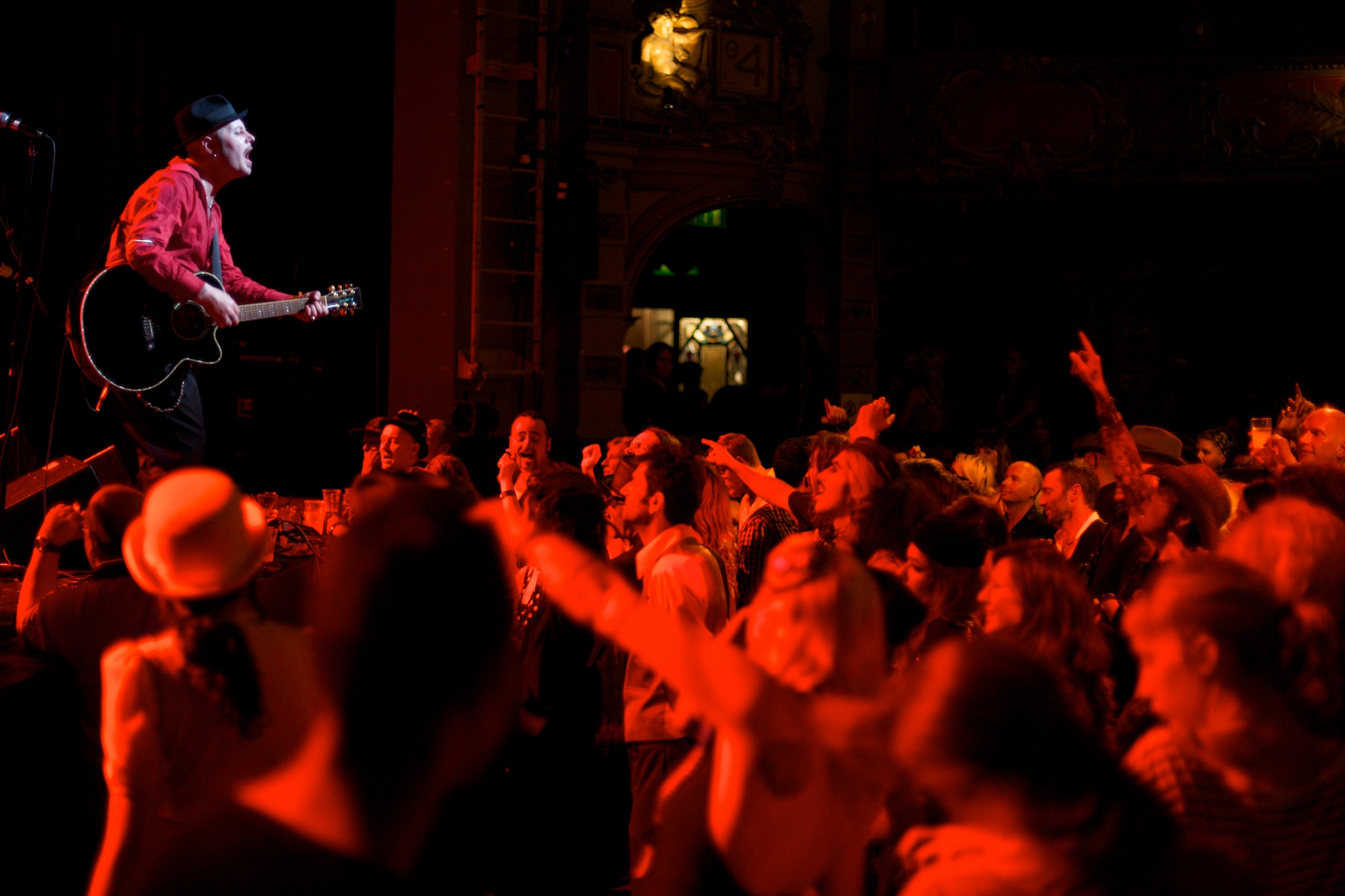
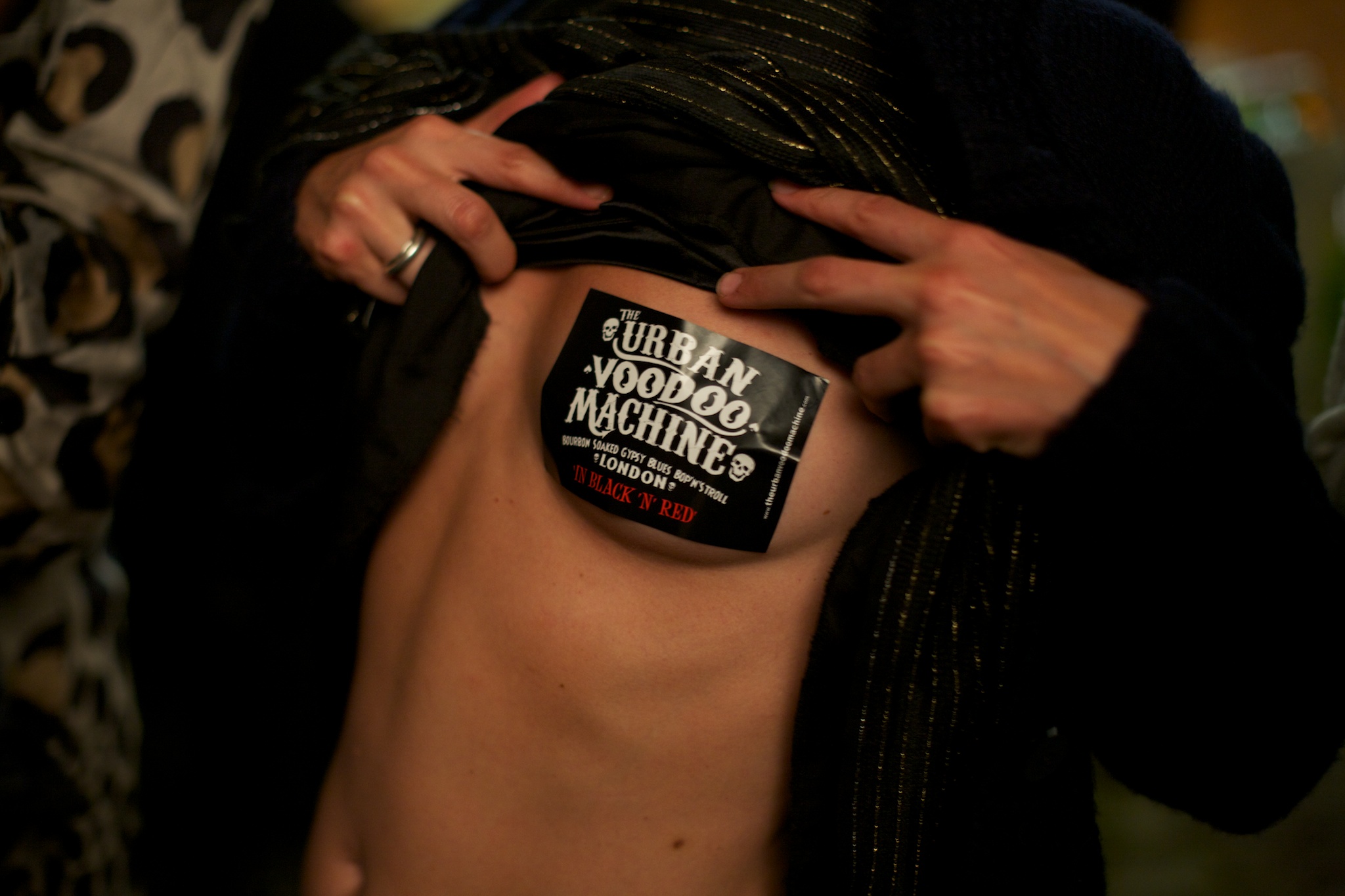
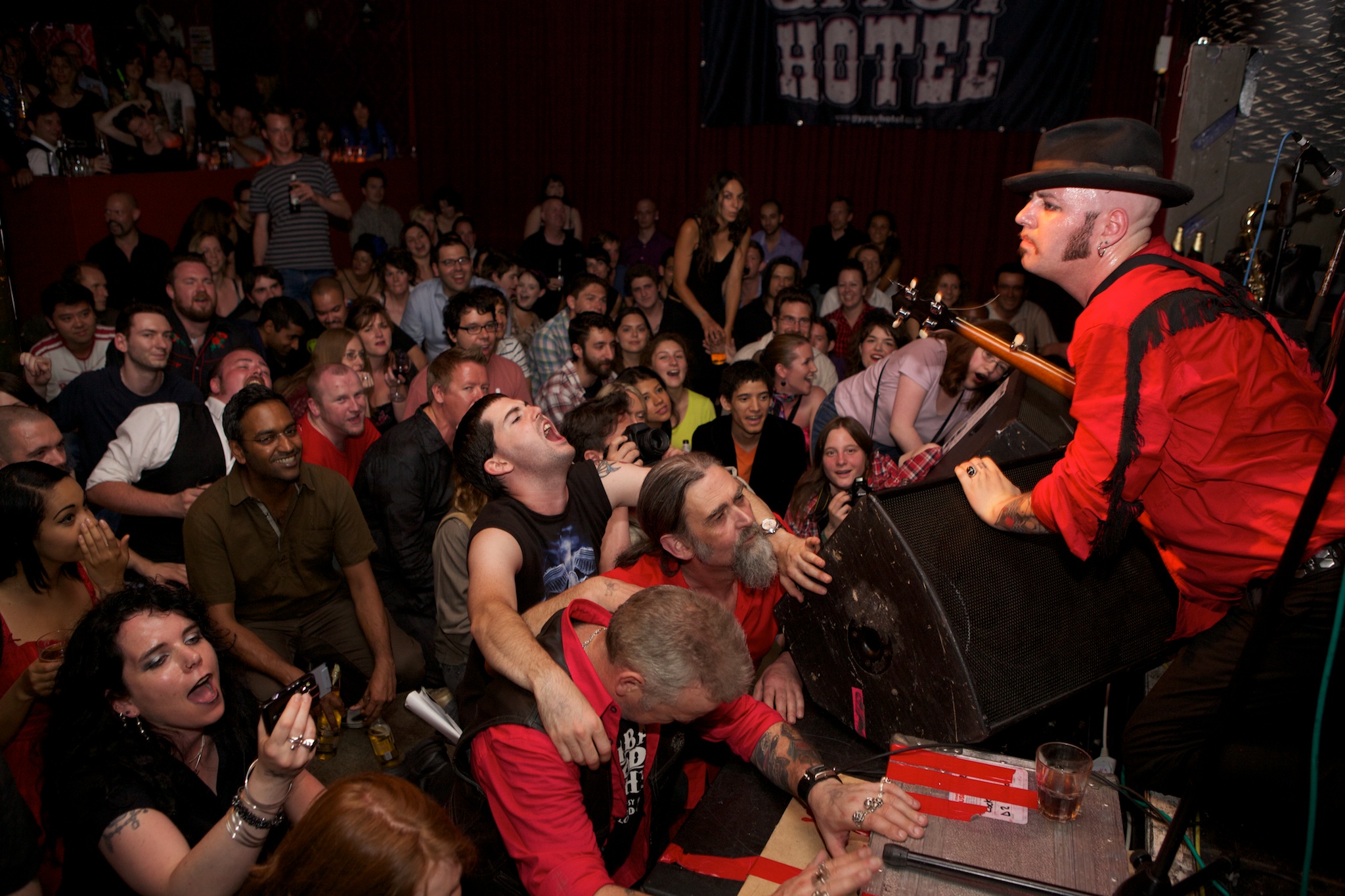
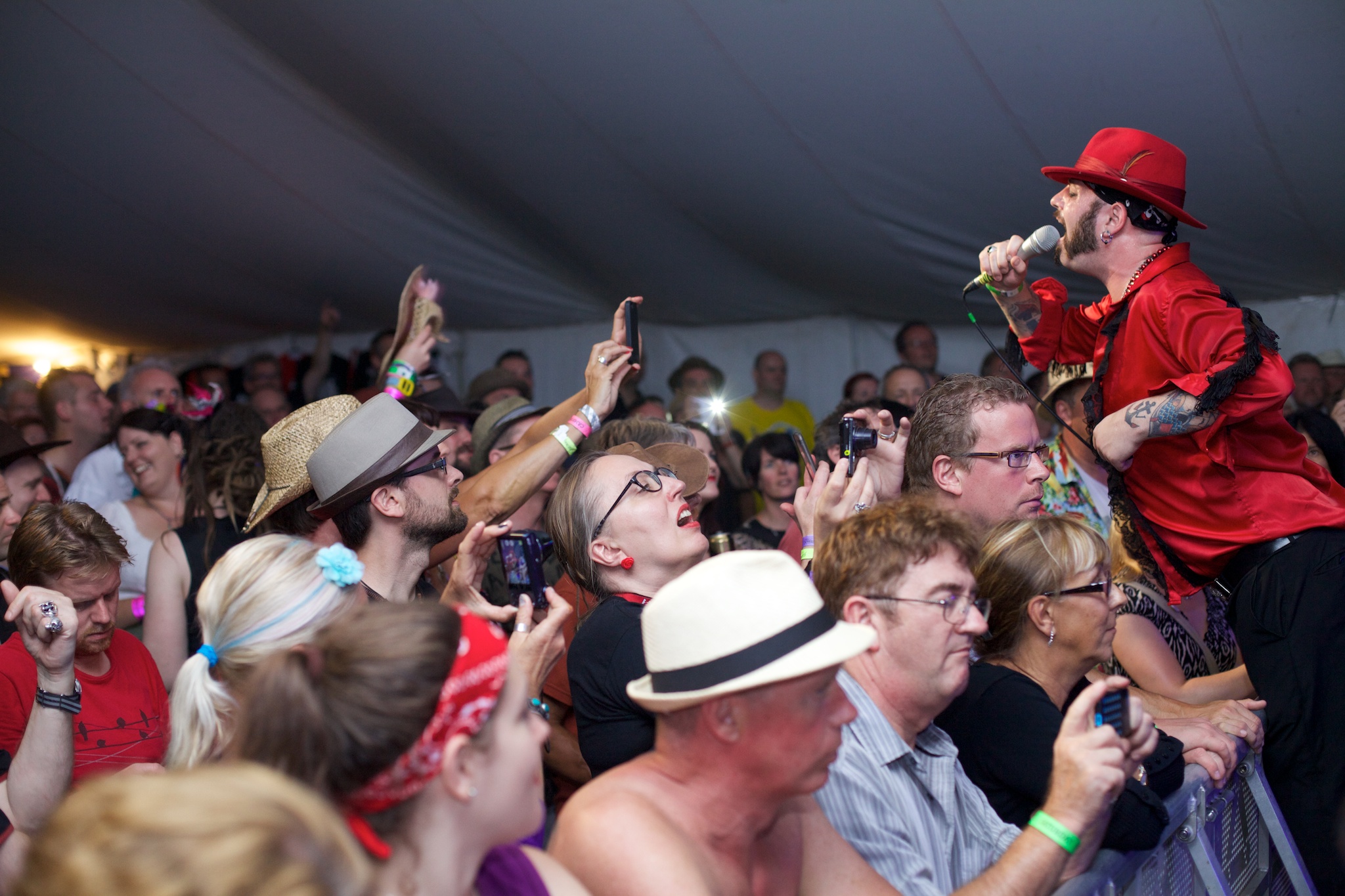
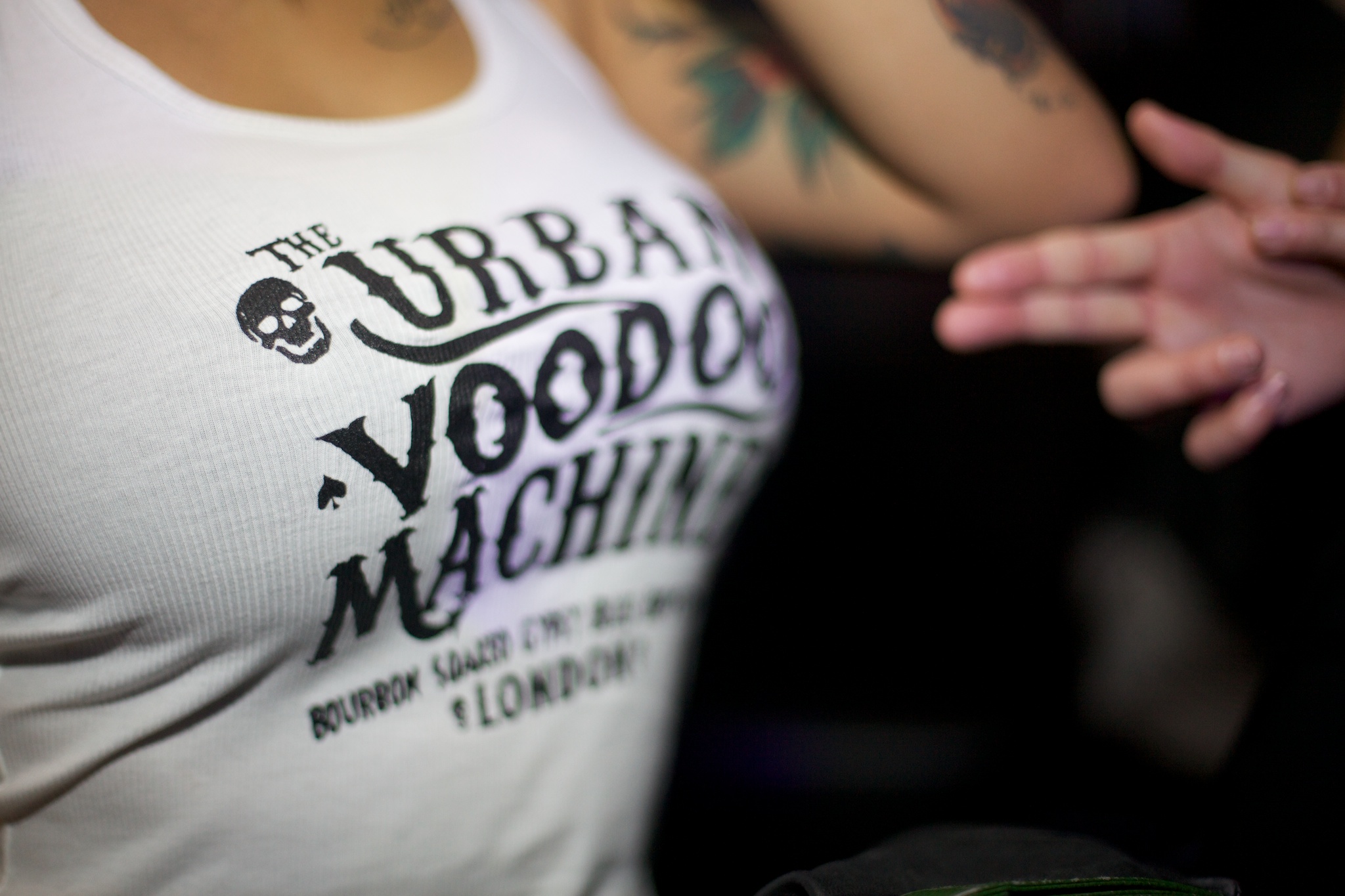
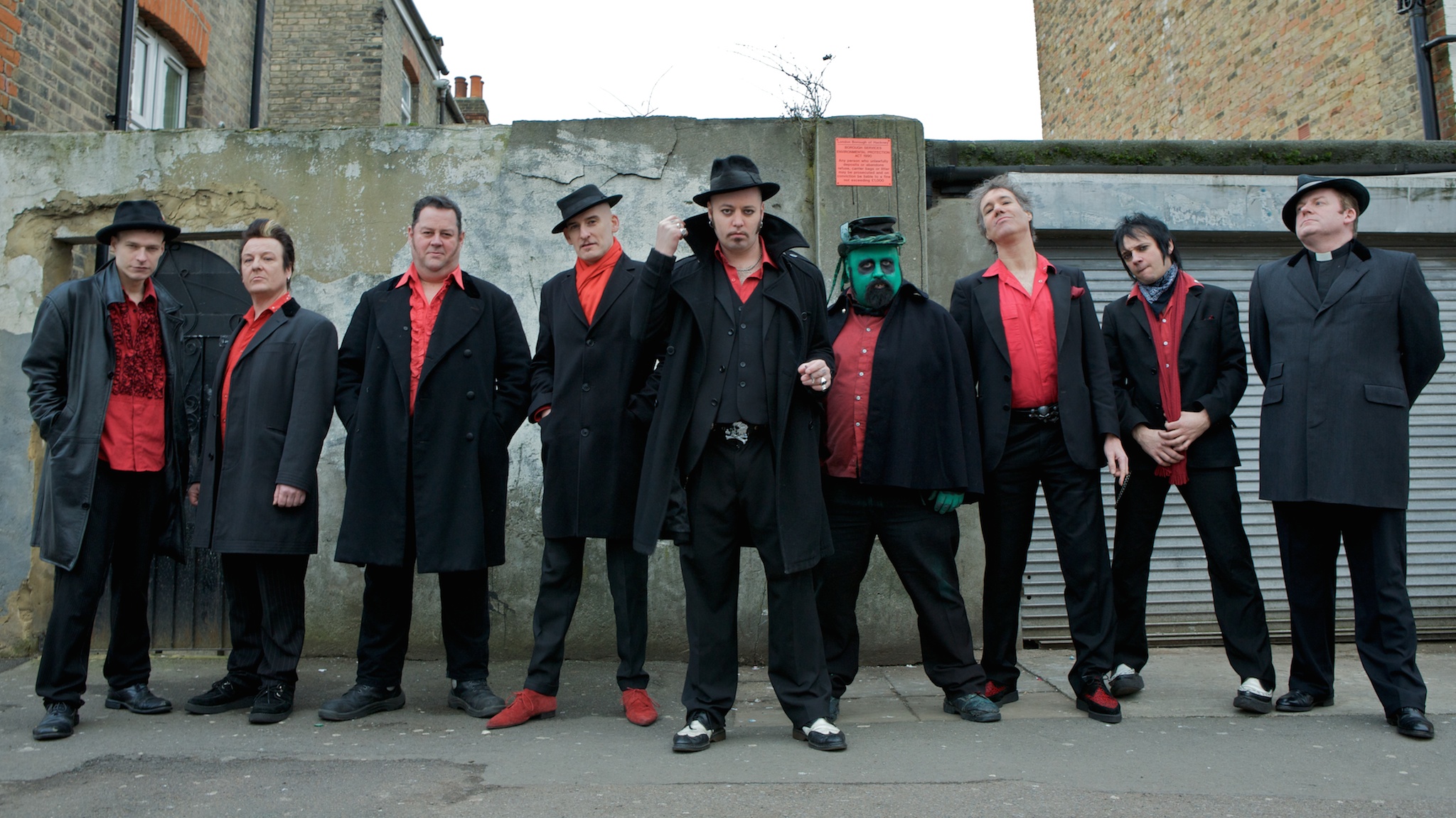
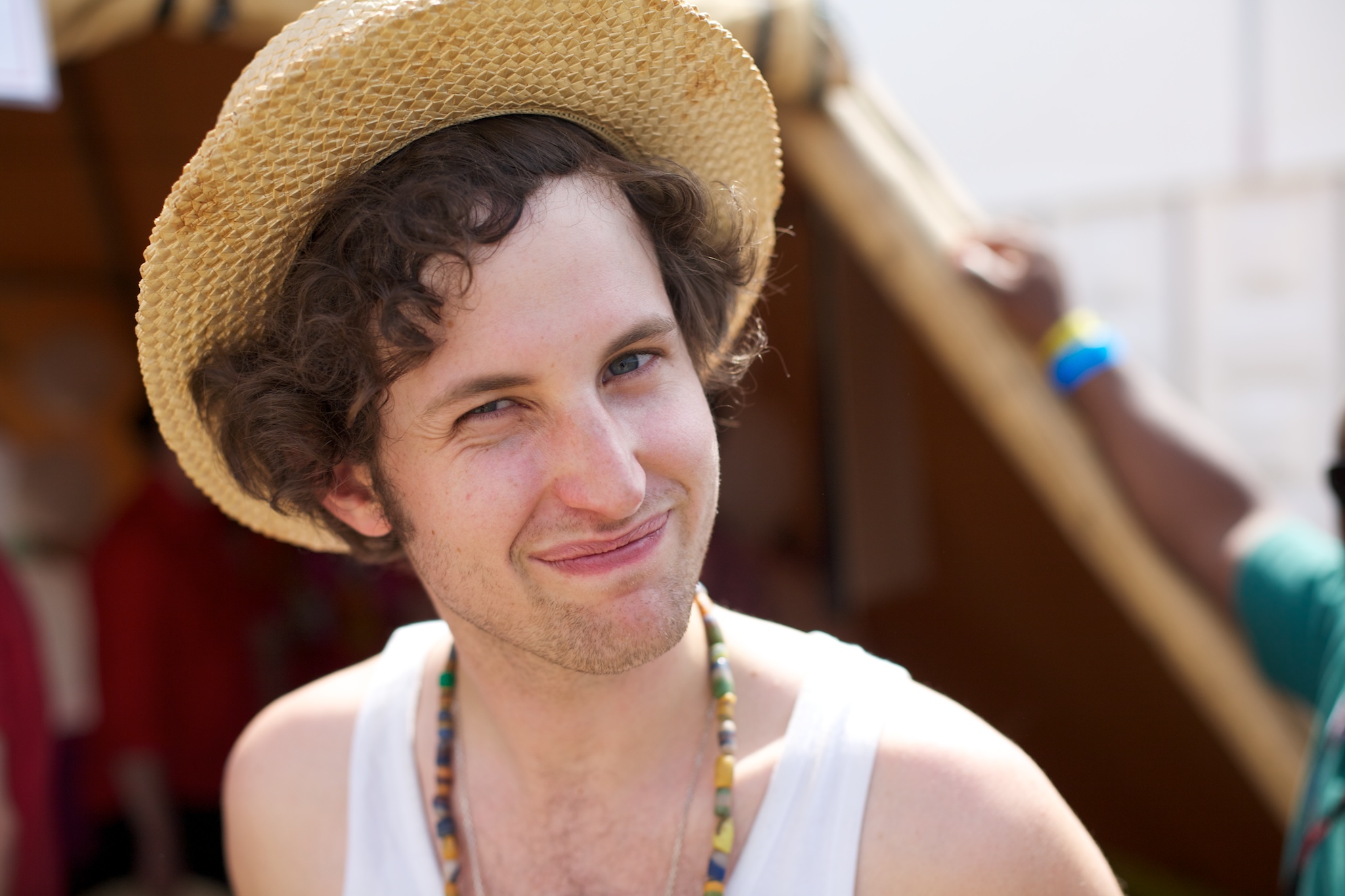
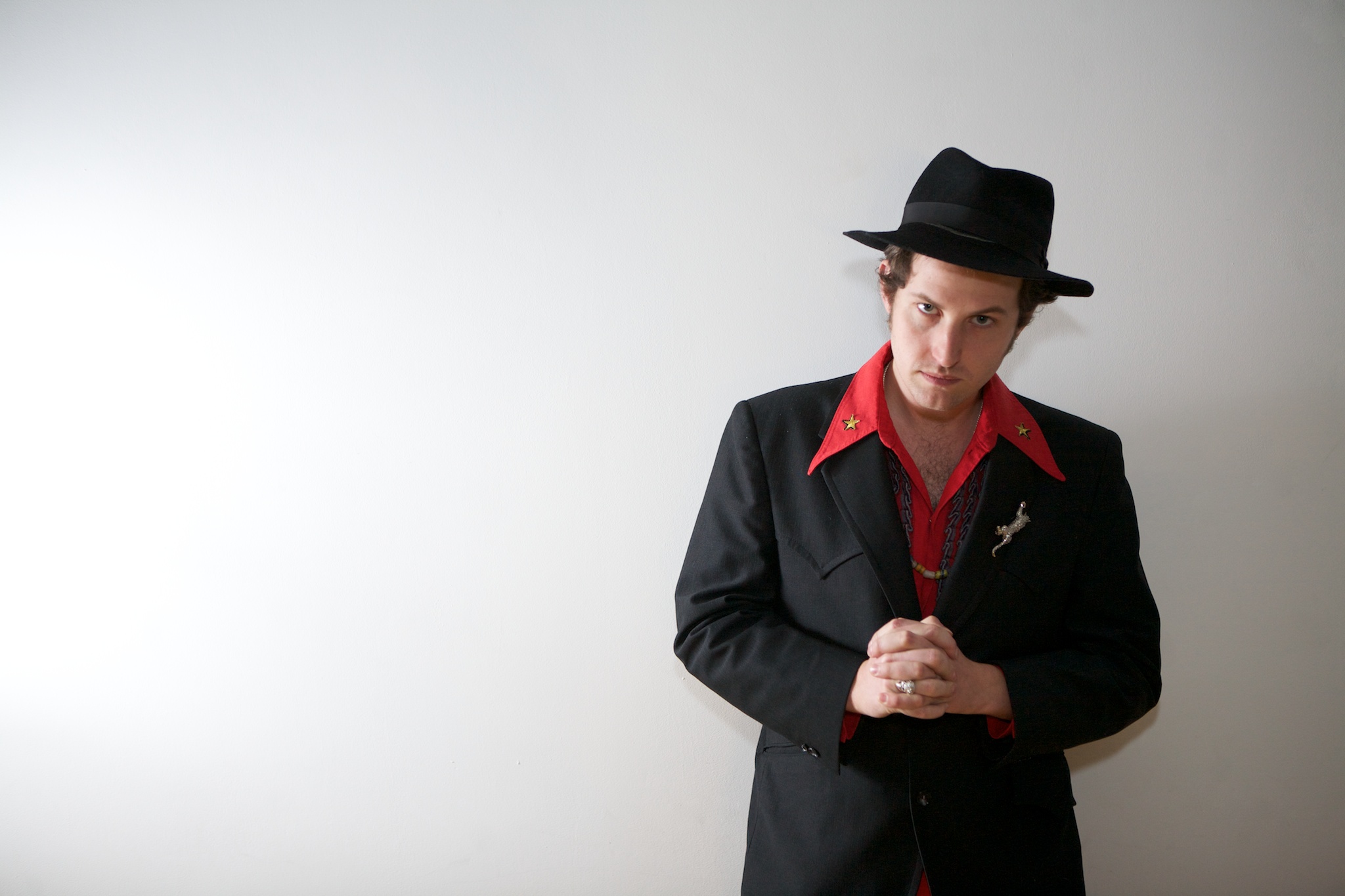
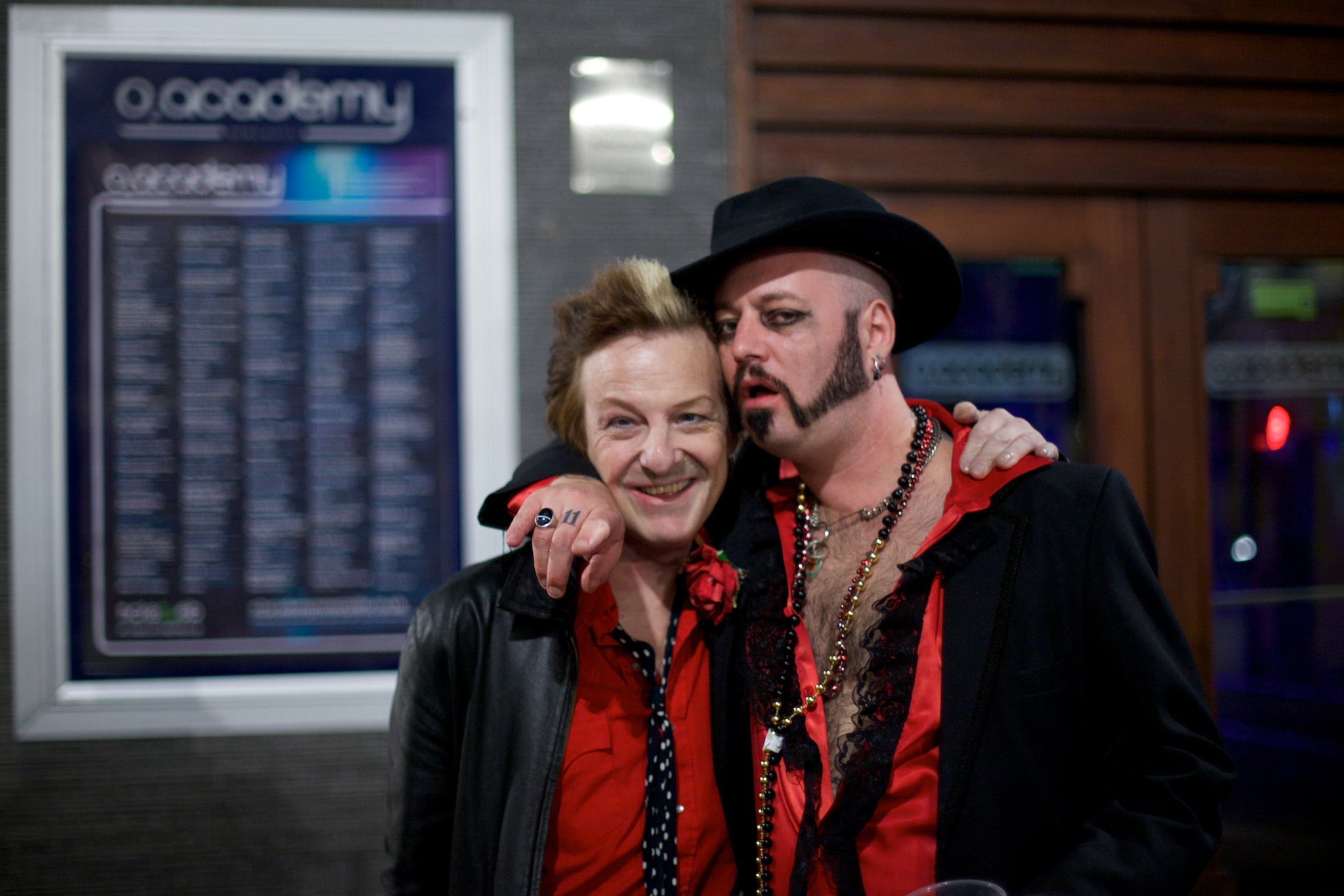


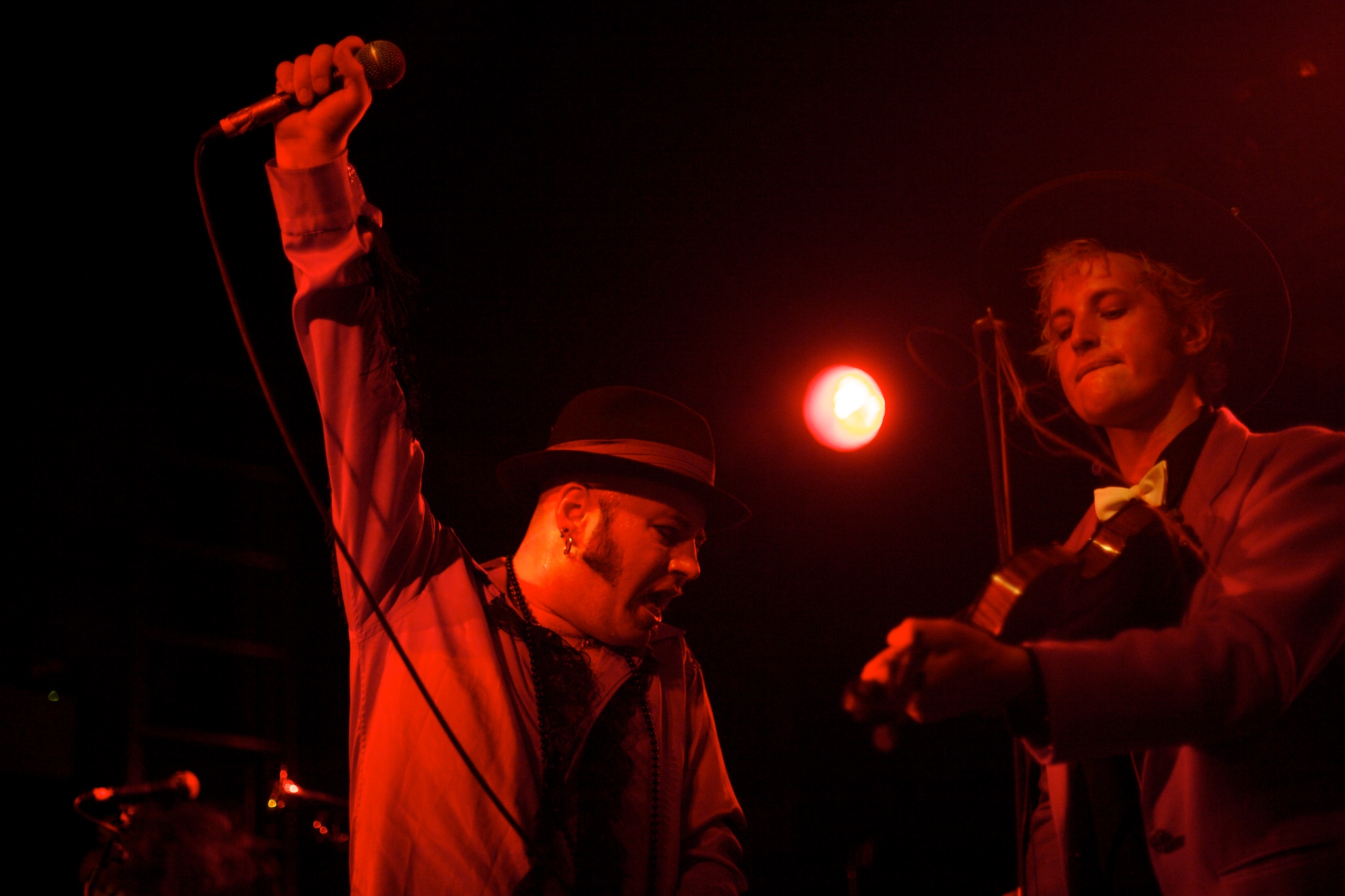
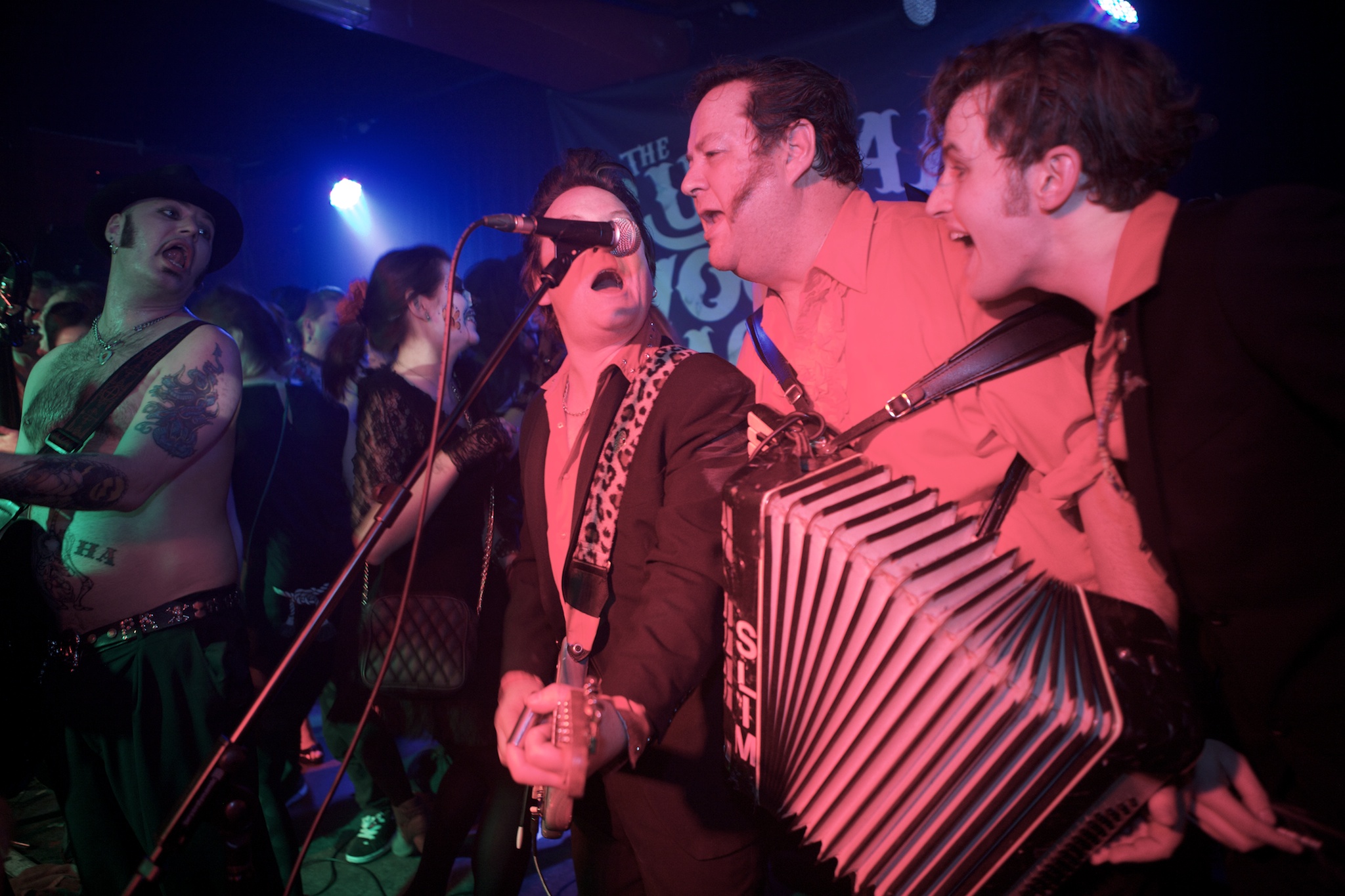

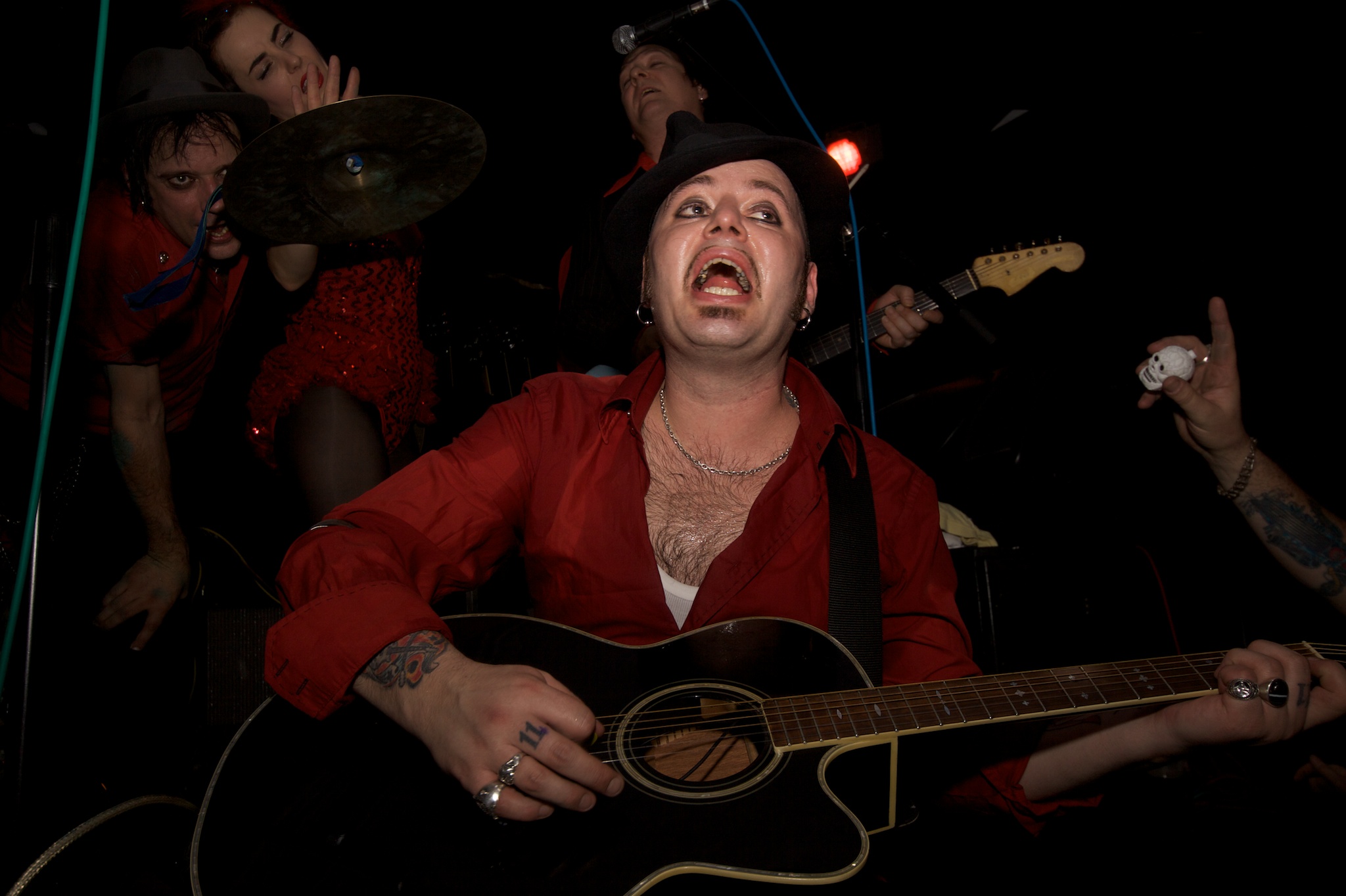

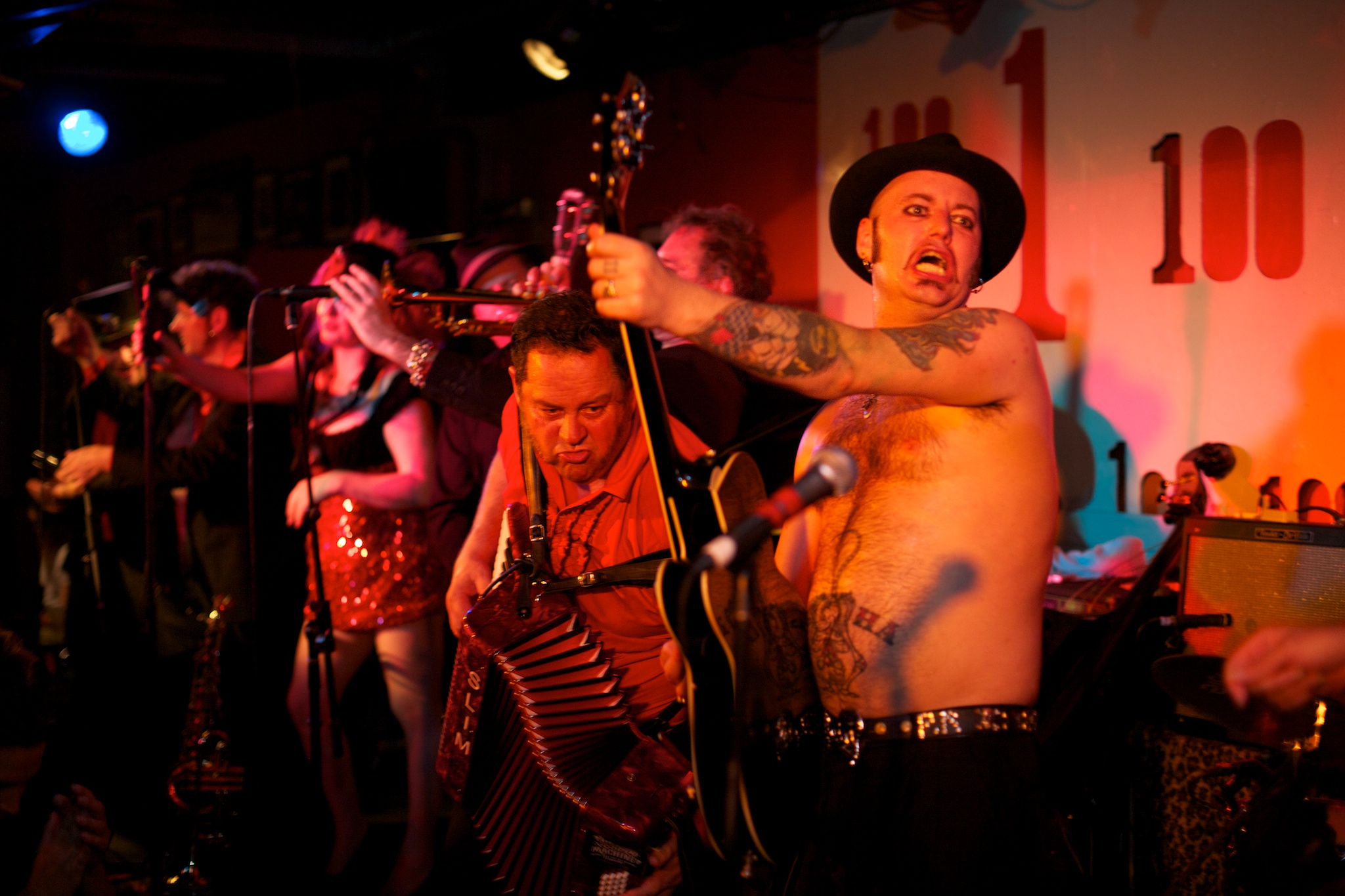
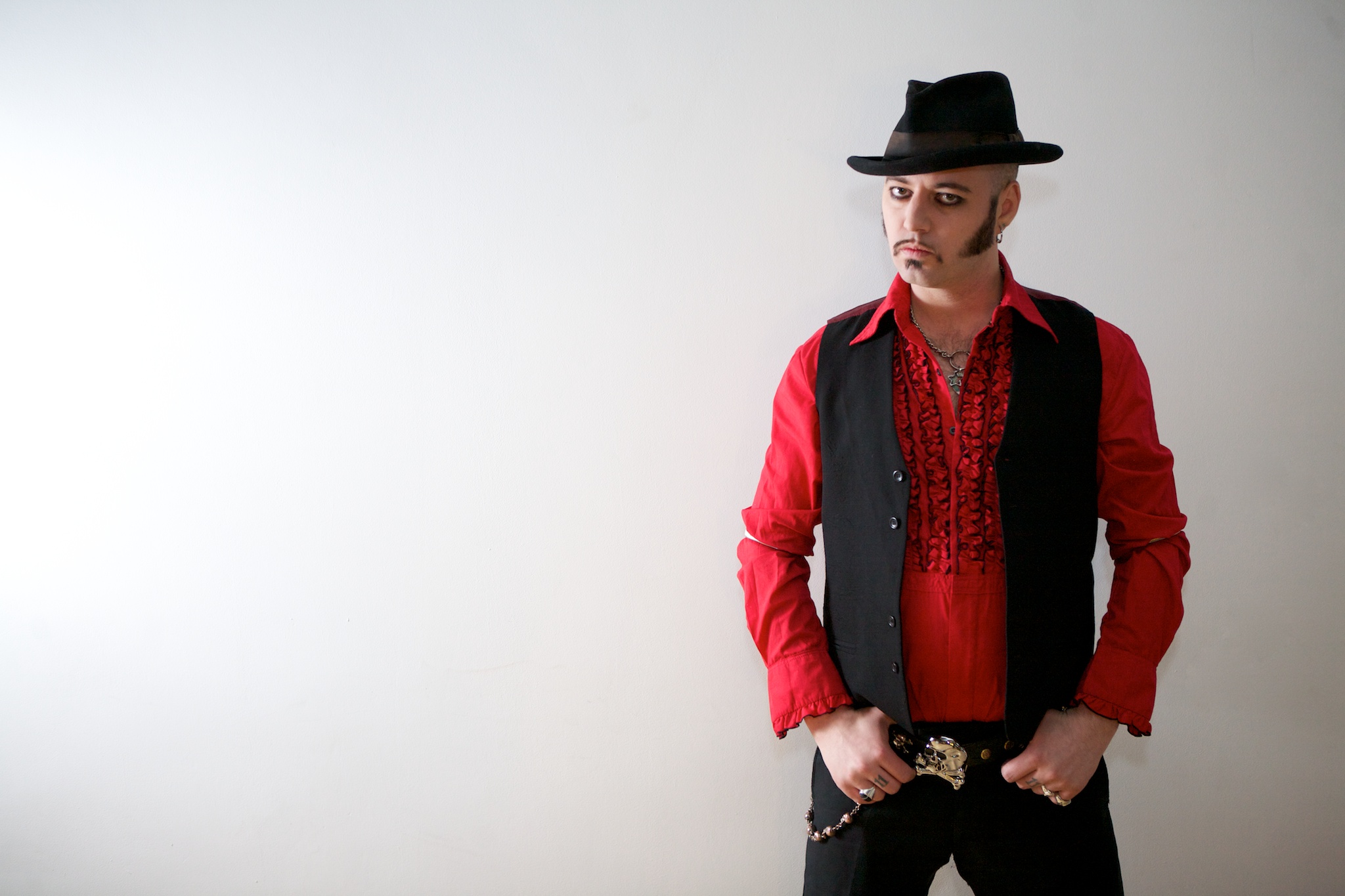
All pictures by Sin Bozkurt sinbozkurt.com
This is the end of the story. And it’s a shame because there’s so much I’ve missed out. This could have been a story about family. About Paul-Ronney Angel, brought up by his grandparents until he was 4 and then by his mum, a woman who “beat the shit out of me daily until the age of 13. She was a bit evil, let’s say. She was nuts. Properly nuts”. Paul-Ronney who moved from Norway to London and built a new family: an enormous band (whose membership includes his wife Ane) and Gypsy Hotel, a rock’n’roll cabaret night populated by like-minded souls; an alternative family of fire-eaters, burlesque dancers and stripping unicyclists – boozers, losers and substance abusers. The Urban Voodoo Machine majors in family: in January 2014, four members of the band had three babies in the space of two weeks. (“We should be talking to the Guinness Book of Records, not Classic Rock,” says Angel. “It must been something in the Bourbon that night.”)
I should have written more about the music. About them recording with Wilko Johnson last year, getting notorious atheist Wilko – at that point dying of cancer with apparently months to live – to appear on a song called Help Me, Jesus. About getting Rat Scabies to appear in the video for single Pipe And Slippers Man (Angel filming Nick Marsh’s part on his iPad the night before Nick went into hospital, both of them wondering if he’d live to see it) or the story of Marsh first hearing that song (“It’s a bit Kinks-like,” says Angel. “In fact when I first wrote it, me and Nick had been out on the piss and we came back to mine and played it and Nick started singing along and he said, ‘That’s a Kinks song’. I said, ‘No it’s not, it’s mine.’ ‘Fucking Ray Davies wrote that, you cunt!’ ‘No, I fucking wrote it!’ And we ended up having a fight. He left: ‘Fuck you! Fucking ripping off Ray Davies!’”)
I should have tackled the whole thing about image, about how some people have a problem with The UVM based on the way they dress and especially the fact that they have a green drummer. “I guess some people think we’re a kind of novelty act because of that sort of stuff,” says Angel. “But it’s showbiz, innit? I dunno if Alex Harvey had that kind of problem with his guitarist painted up.”
I had a shitload I could’ve written about the new album. I could have banged on about tracing Rob Skipper’s digital footprints, finding stuff from and about him littered across Twitter and YouTube and his Pinterest board and how I imagined his daughter looking at this stuff one day, trying to find clues as to who he was and why he died. But you’ve got to stop somewhere.
It’s dark now but Soho is just coming to life. Angel and I are drinking at a picnic bench in the back alley behind the 12 Bar. Bar staff smoke and take selfies. Dudes mill around with flight cases. Scaffolding and hoarding stretches all the way up the street. This part of London is being dismantled. Denmark Street – former home to the NME, Melody Maker, legendary sleeve designers Hipgnosis and a mecca for musicians – is being redeveloped. The Astoria was closed in 2009 and in the time it’s taken me to write this up, the12 Bar has also moved. Developers are nipping, tucking and Botoxing away the area’s laughter lines and scars, taking away its character to leave something clean and sleek and standardised for the tourists.
Angel likens it to how his songs have been censored by the BBC on the rare occasions they’ve been played on the radio. “I sing about real life,” he says. “I’m just trying to document life in all it’s glories, filthy or otherwise.” He looks around him at the scaffolding. “Life is quite filthy sometimes. I suppose some people don’t like that too much.”
[Postscript: Nick Marsh died in June 2015, aged 53. He played his last gig with Flesh For Lulu at the Brooklyn Bowl in London in April. He was buried in Epping Forest. At his funeral, The Urban Voodoo Machine escorted his coffin to graveside in the manner of a New Orleans-style marching band.]
For an exclusive 4-track download from The Urban Voodoo Machine, click here. For tour dates, click here. Follow Scott Rowley on Twitter and Facebook.
The Urban Voodoo Machine's Nick Marsh dead at 53
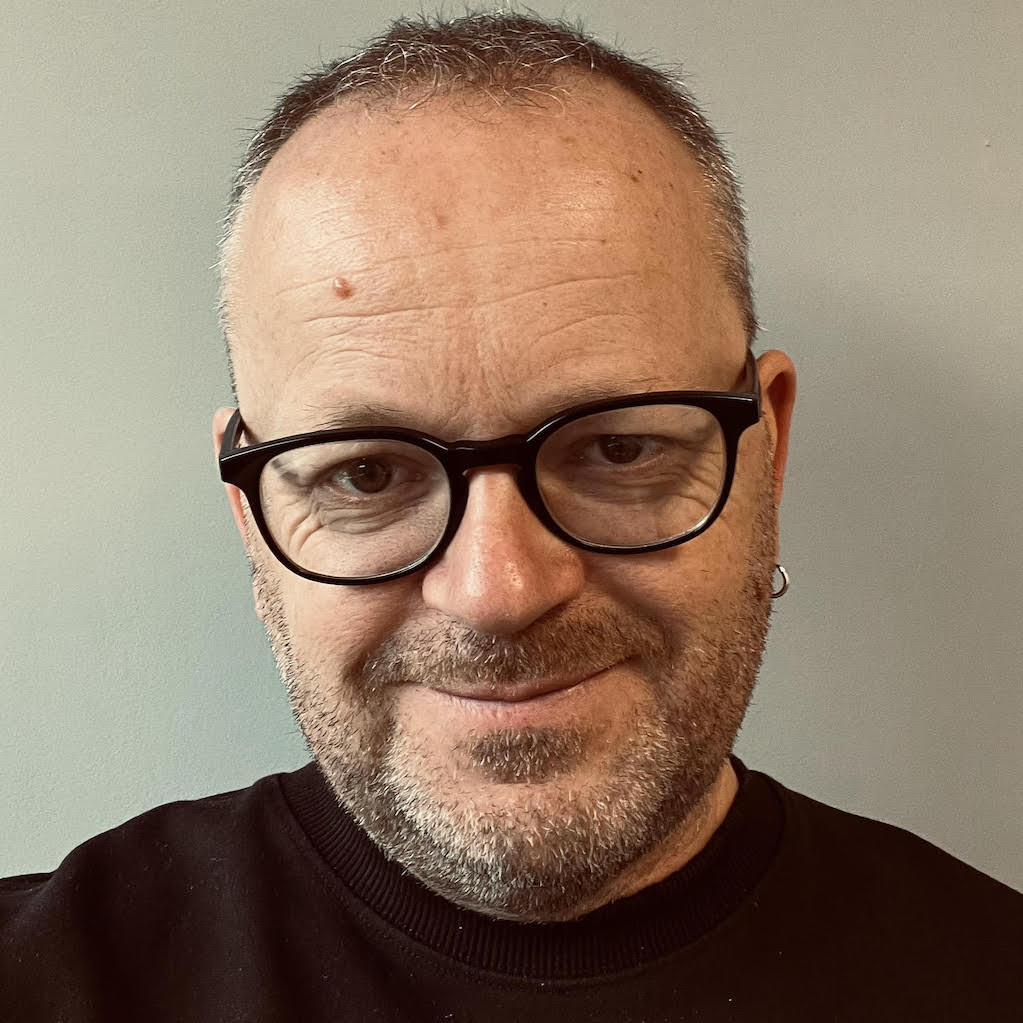
Scott is the Content Director of Music at Future plc, responsible for the editorial strategy of online and print brands like Louder, Classic Rock, Metal Hammer, Prog, Guitarist, Guitar World, Guitar Player, Total Guitar etc. He was Editor in Chief of Classic Rock magazine for 10 years and Editor of Total Guitar for 4 years and has contributed to The Big Issue, Esquire and more. Scott wrote chapters for two of legendary sleeve designer Storm Thorgerson's books (For The Love Of Vinyl, 2009, and Gathering Storm, 2015). He regularly appears on Classic Rock’s podcast, The 20 Million Club, and was the writer/researcher on 2017’s Mick Ronson documentary Beside Bowie.
